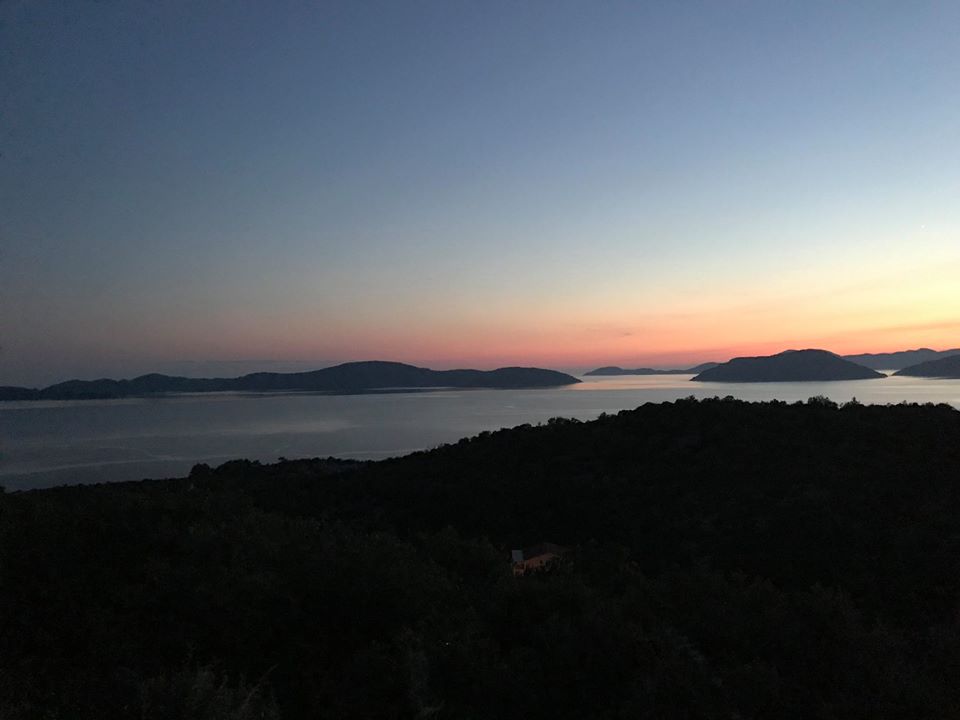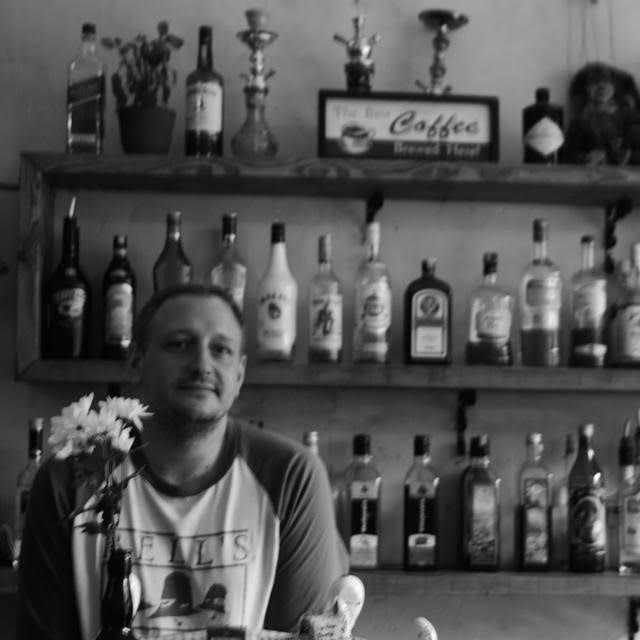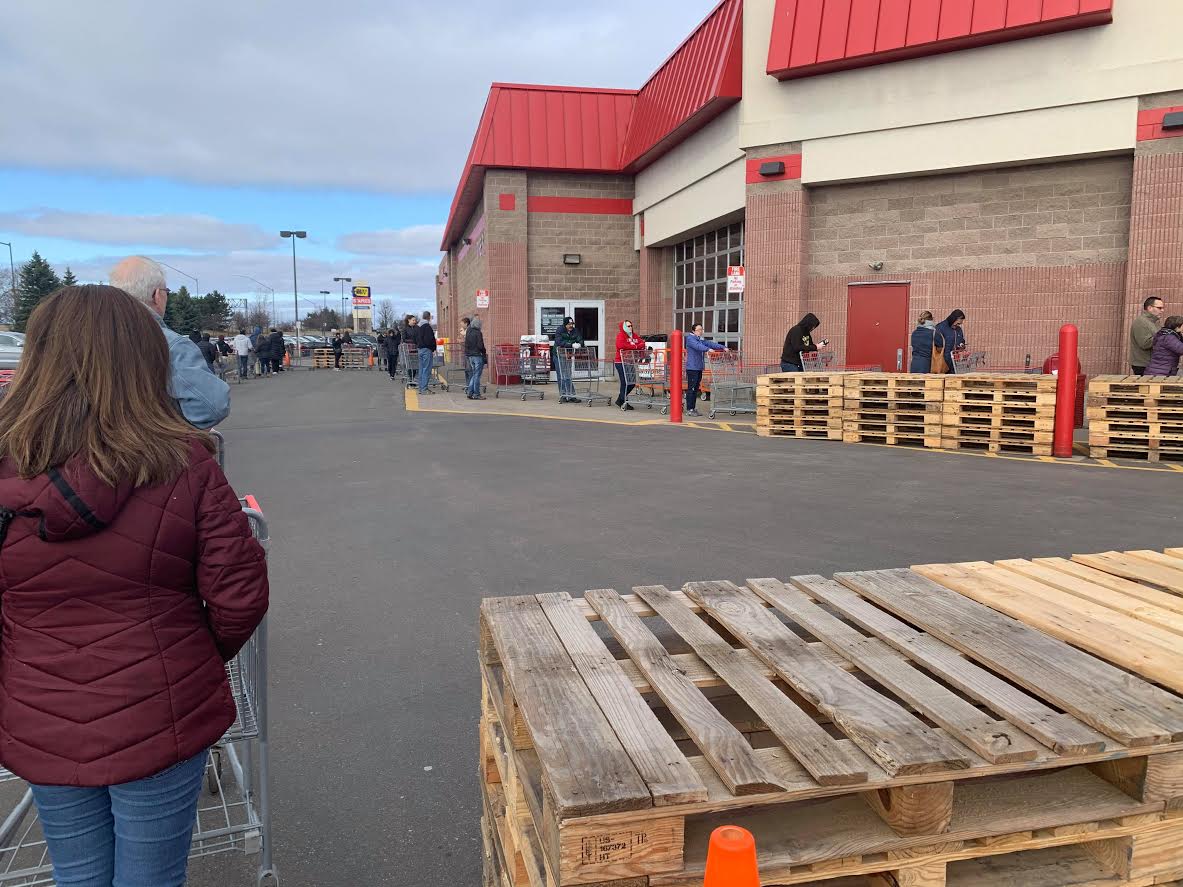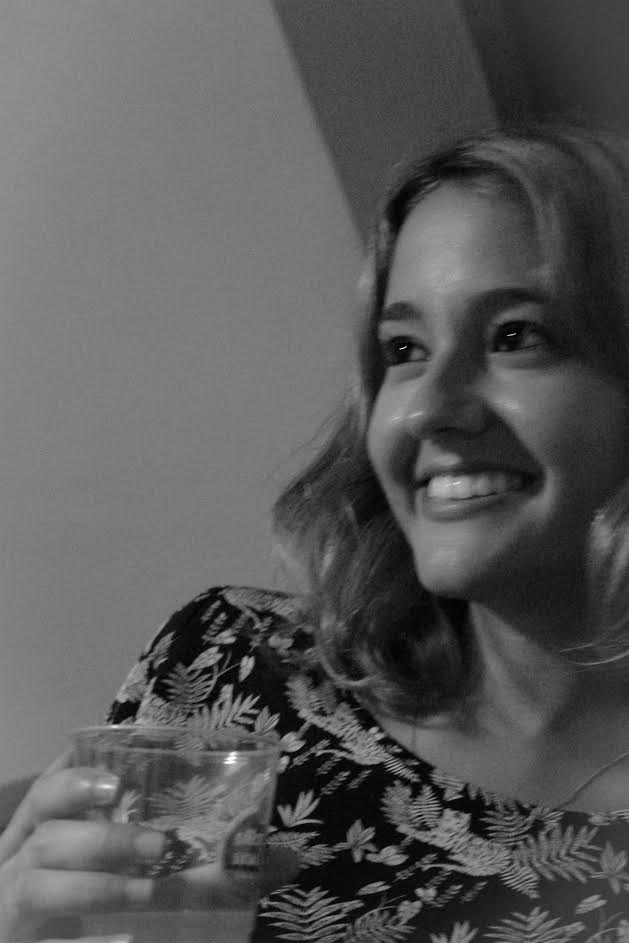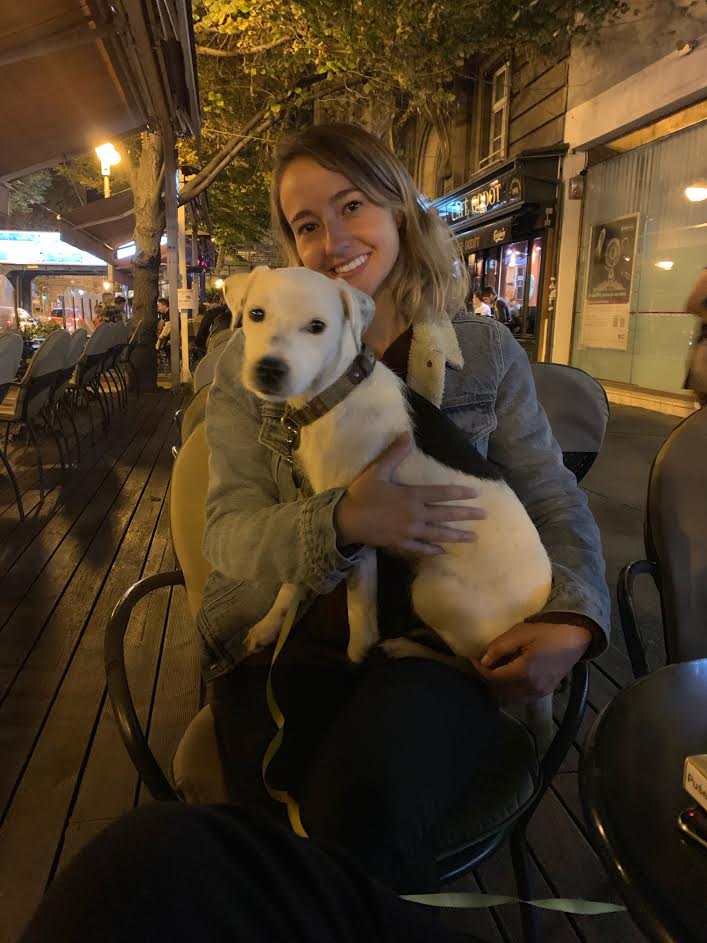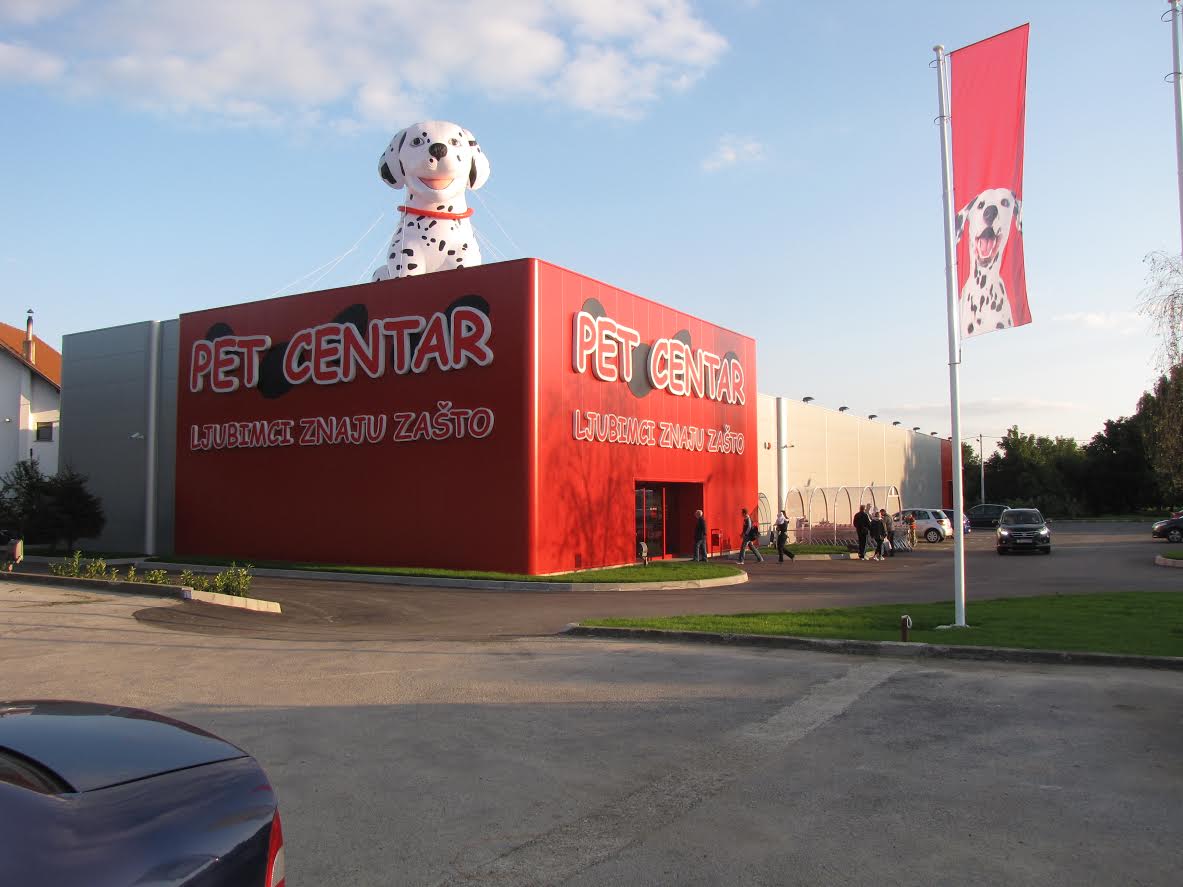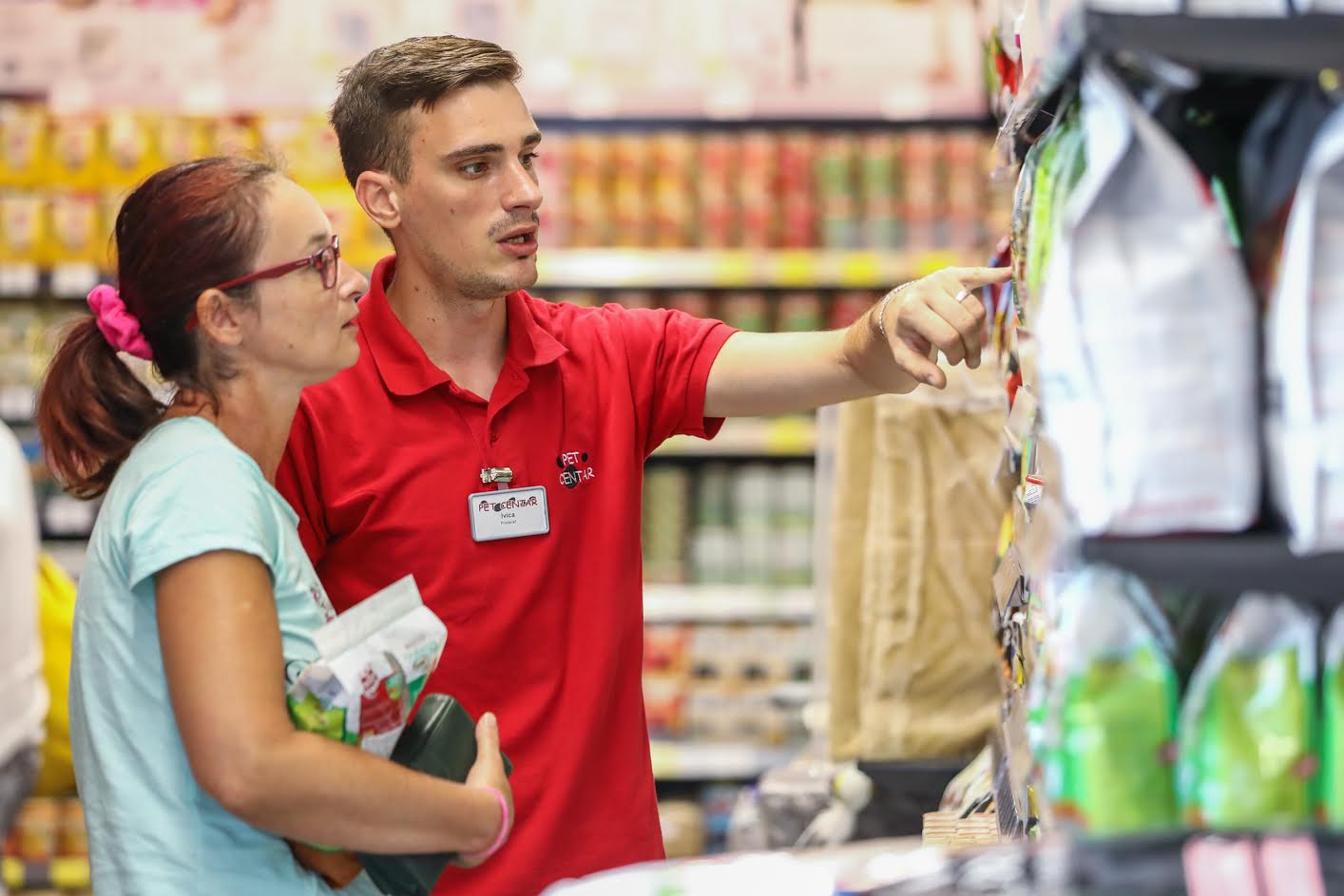Coronavirus: Should Croatia Engage Unemployed in Agricultural Work?
As Poslovni Dnevnik/Denis Matijevic writes on the 2nd of April, 2020, countries like Austria, Germany and France have already launched websites where unemployed people who are not affected by the coronavirus pandemic can apply to work in the agriculture sector.
A large number of European Union countries facing the spread of the coronavirus pandemic are calling for agricultural ''patriotism'' and are warning that agriculture and food production should not stop at this point. The biggest challenge for them is the lack of manpower, which will come to the forefront in an even stronger way once the harvest season begins.
Food supplies around the world are facing increasing obstacles, including export restrictions, and large producers naturally want to secure their citizens' supply. Numerous countries have reiterated the need for self-sufficiency in food production, and there is a concern that some governments may restrict the flow of basic food products to secure domestic supply in the face of supply chain disruptions.
One of the problems that is particularly striking is that in most EU countries, OPG owners are senior citizens, who are particularly affected by the coronavirus pandemic. According to some figures, as many as 59.7 per cent of OPG owners in the EU are over 65 years of age.
For this reason, numerous governments are trying to find ways to engage those who can work in agriculture, with a focus on those who have already lost their jobs (such as hospitality workers), to help with agriculture work in combination with volunteering and securing an income.
Some countries believe that one of the financial measures could be one that would ensure that part of the financial support for the unemployed could be diverted to farmers, so that volunteers could earn a decent income.
They're calling on hospitality workers who have lost their jobs, such as waiters and cooks.
Austria currently lacks 5,000 workers for their harvest, and as spring approaches, more and more people are going to be needed. Their meat processing industry isn't in a better position either, as they lack as many as 9000 workers. For this reason, the Austrian Government is urging citizens who are currently free and have no work obligations, to apply and support the agriculture sector. To facilitate this, the government has launched a website through which interested parties can apply.
The appeal was addressed primarily to hospitality and gastronomy employees who are not currently employed, but is also extends to students.
Over recent years, many workers from other EU countries or third countries have been arriving in Germany to undertake seasonal work in agriculture, such as picking asparagus and strawberries, and the coronavirus crisis has caused the countries many difficulties in terms of their labour supply.
About 286,000 seasonal workers work in German fields each year, with most of them coming from other countries. Currently, the most affected people in this field in Germany are fruit and vegetable growers who totally rely on foreign seasonal workers.
The French Government has also called on employees who are currently laid off or aren't working due to the coronavirus pandemic, to make themselves available to help farmers with seasonal work. Leaders of the FNSEA, France's main agricultural union, warn that they currently lack around 200,000 people in agriculture.
The FNSEA has also launched a website where residents of France can register to make themselves available to farmers who need workers.
To encourage people to register, those who volunteer will be able to combine their partial unemployment benefits with their wages earned by engaging in seasonal work in agriculture, which are roughly equivalent to the minimum wage.
The possible decline in production across Europe, the difficulty in supplying and the closure of some countries for export could leave the global market without some types of products and food. Croatia, as a major food importer, could be primarily affected by the supply of pork, milk, vegetables and fruit.
Therefore, it is now an opportunity to seriously start thinking about turning things around rather dramatically in terms of Croatian agriculture. At this point, it is necessary to take immediate steps to adopt crisis and rapid measures that will ensure a secure supply and remove obstacles to food production.
Once the coronavirus crisis is over, it will be necessary to make a shift and change the business model for agriculture, raising production and self-sufficiency, and being aware that agriculture and food production is one of the most important strategic branches of the entire economy.
Make sure to follow our dedicated section for rolling information and updates on coronavirus in Croatia.
Foreigners Self-Isolating in Croatia: Do You Feel Safer? Kathy from UK in Dubrovnik
April 2, 2020 - Do foreigners in Croatia feel more or less safe sitting out COVID-19 here than in their home country, and what are their experiences? A new series on TCN, with Kathy Steward from the UK in Dubrovnik as our 12th contributor.
Oxford University recently published some research on government responses to coronavirus which showed that Croatia currently has the strictest measures in the world. While inconvenient, this is a good thing in terms of reducing the spread of the virus, and I am certainly not alone in my admiration of the official Croatian handling of this crisis in recent weeks, both in terms of action and communication.
But what do other expats here think? And how does it compare with the response in their home country? Would they rather sit this one out here or there? In the first of a new series on TCN, we will be featuring expats from all over the world to see what their views are on life in corona Croatia rather than back home. So far we have heard from expats in Croatia from Romania, USA, Ireland, UK, Mexico, Argentina, Spain, Singapore and Germany. Next up, Brit Kathy Steward from Dubrovnik.
If you would like to contribute to this series, full details are below. Now, over to Kathy.
Firstly, how are you? Are you alone/with someone? Tell us a little about your situation and sanity levels.
I’m fine. In fact, better than I thought I’d be after 2 weeks of hardly seeing anyone. It’s just me and my ageing Border Terrier, Chester (he was 14 in September). We moved here in September 2017 from England. I have 2 apartments here in Dubrovnik, one that Chester and I live in, and a small studio apartment immediately below my one which I rent out to tourists all year round. Last year was my first full year of renting out (I opened halfway through 2018) and I had a lot of bookings. My apartment is fairly cheap to rent so most of my guests are young couples/friends in their 20’s and 30’s, or people travelling around Europe from Australia, NZ, the States etc, so they want somewhere fairly inexpensive to stay. I enjoy meeting my guests and talking about their travels. The majority of them are very friendly and happy to chat. I’ve even stayed in contact with some of them!
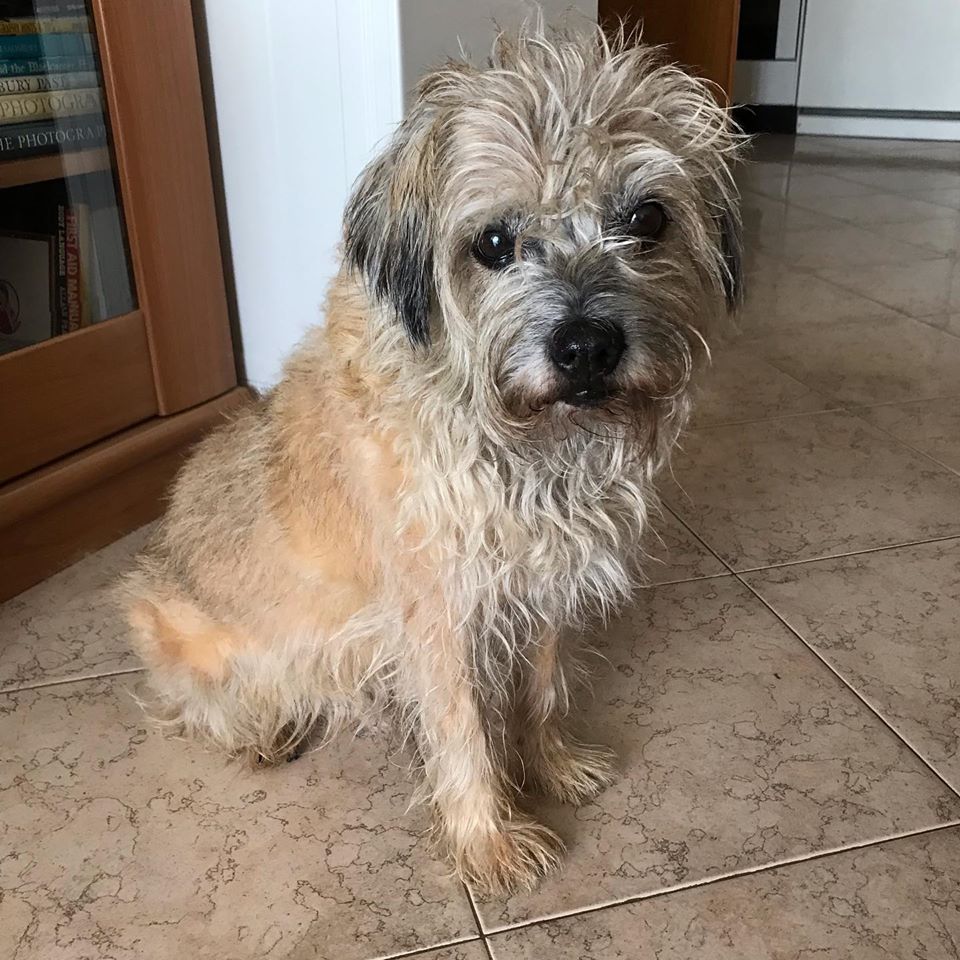
As far as keeping sane is concerned I have a number of ways of doing this. Before all of this, I would see my neighbours who live in the apartment above me maybe once or twice a week, and I would also try to meet with a friend (whoever was available) once a week. Also, especially during the winter, I would try to go out about once a month to see local bands playing (we have excellent bands & musicians here in Dubrovnik!). So, I do miss all of that, but I know everyone is in the same boat as me, which makes it a lot easier. I’ve been messaging with friends a lot more recently. Obviously it’s times like this when you want to check up on your family and friends to make sure that they’re OK, especially when you know you’re not going to be able to see them for some time. I often Facetime with my son, and also with my mum (they both live in England) so it’s nice to actually talk to them and see them, rather than just sending them messages.
I’m very lucky with where I live. I’ve got a nice view from my apartment so I can sit on my settee looking over to the hills, and within a couple of minutes walk I can look out over the sea, and also up the coast. I often walk Chester there just to look at the views.
As mentioned above, I like to see local bands playing. Music has always been very important to me and it has helped me through some difficult times in the past, helping me escape from whatever is going on in the real world. I have a Facebook page, Ageing Rock Chick in Dubrovnik, which I started a couple of years ago just as a fun thing for me. Recently I’ve been posting a bit more on there, so, while I’m checking out what I want to post I can escape from the craziness that is COVID-19 and lose myself in the world of music. Having said that, I have recently started a series of coronavirus related songs, starting of course with The Knack and My Sharona.
What do you think about the economic measures the government is taking, are they helping your business?
I don’t think I am eligible for most of the measures from the government because I don’t have a company or employees, and I haven’t lost my job so I’m not unemployed. It seems that most of the measures are for 3 months (well, at the moment anyway) but those of us who rely on tourism will be affected for much longer than that. Even if travel restrictions etc are lifted by the summer, it will take a lot longer for tourists to have the confidence to return, and especially in the numbers required for people to make a living from. I don’t have any other income, and I’m having to use my savings (yes, I know I’m lucky I have savings. There are an awful lot of people who don’t have any), which I was hoping to keep to see me through next winter.
When did you realise that corona was going to be a big issue?
I always listen to BBC Radio 4 every morning anyway, so I was aware of the situation in China from the start. I think I realised it could be a problem when it started spreading across China, and especially when it got to Europe, and Italy in particular. I had a booking for my apartment for the middle of February. About 10 days before the guests were due to arrive I saw on his Airbnb profile that the person booking had a review from a visit to China in January. I contacted Airbnb for advice and they cancelled the booking.
I’ve got a Facebook page and Instagram account for my apartment (Apartment Leona Dubrovnik). Initially I didn’t post anything about coronavirus because I didn’t want to post anything negative, but by March I realised I couldn’t avoid it any longer, however I always try to put a positive spin on the posts (I shared the TCN article ’10 Things Which Await You After Corona Crisis').
What is your impression of the way Croatia is dealing with the crisis? How safe do you feel?
I’m very happy with the way it is being dealt with here. I had a guest who had booked to arrive on 14th March. He was travelling from Mostar. I messaged him the day before to warn him about the new restrictions regarding entry into Croatia, especially if he’d been in certain other European countries within the previous 14 days (he was French and travelling by motorbike so there was a good chance he had been in at least one of the countries within that time). He messaged me about an hour before he was due to arrive saying that he hadn’t been granted entry into Croatia. Although I had lost the booking I was happy that the Croatian authorities were taking these measures to try to reduce the risk, so yes, I certainly feel safe. Well, as safe as you can be with something like this.
Now compare that to your home country and how they are handling it. What is Croatia doing better/worse?
Croatia is doing a much better job of handling the situation than the UK. They brought in measures a lot sooner than the UK government did, who appear to have let things get out of hand before acting, and the measures here are a lot stricter as well. In the UK they don’t appear to be thinking things through properly before issuing advice/restrictions. Initially Boris Johnson wanted to achieve a ‘herd immunity’ within the population against the virus, until he was advised that this would have a catastrophic effect. There also seems to be a lot of confusion in the UK about what you can and can’t do, particularly in regards to things such as being allowed out. They are encouraging people to go out once a day to exercise, so people were driving out to the countryside to go for a walk, then the police were saying they shouldn’t be there because it was unnecessary travel, which isn’t allowed. Also, Boris and a few other cabinet members have recently tested positive for COVID-19 so it would appear that they haven’t been practicing what they’re preaching.
What about official communications from the authorities, compared to your home country?
I think it’s very good here. We are getting daily updates from officials, both nationally and locally, which is great because otherwise there’s a chance that incorrect information could be spread. Obviously I read the updates on TCN every day, but I also follow various local news portals to get more detailed reports of what is happening down here (thank goodness for Google Translate!).
What's the one thing you wish you had taken with you into self-isolation?
I’m a fairly well-organised person, so I have everything here that I need. I went shopping the day before the restrictions were brought in so I had plenty of things in my cupboards, fridge and freezer. I went again yesterday for the first time in 2 weeks! I often just make meals up anyway depending on what’s in the fridge or needs using up. As it’s just me here I can cut back on food if I need to, and if I cook something that tastes really bland or awful I don’t have to worry about a husband/partner/child complaining about my cooking!
One thing you have learned about yourself, and one thing you have learned about others during this crisis.
As I live alone I’m used to spending a lot of time on my own anyway. I don’t always like it so I thought I would really struggle now that I HAVE to be alone and not able to meet up with friends. However, I’ve actually quite enjoyed it, especially when you hear about couples and families who are cooped up together and are having arguments etc.
I can’t speak for other towns but I’m very impressed with how people here are taking notice of the instructions given, especially as far as staying indoors is concerned. Yes, there are a few people out and about, but they do tend to keep their distance. I have found the majority of Croatians to be very friendly. I’ve been very fortunate with the people in my street, as they have all been very friendly and made me feel welcome right from the start. Luckily I have Chester so we are able to get out of the apartment every day for walks. What I have found is that, even though there are less people out and about, those who we do see, even strangers, are more likely to chat (at a safe distance of course!) or even just smile and say ‘Hello.’. This is particularly important for someone like me who lives alone, and who, without that interaction, could go for several days without speaking to another human.
Thanks Kathy, stay safe and see you on the other side.
TCN is starting a new feature series on foreign experiences of sitting out covid-19 here in Croatia compared to their home country. If you would like to contribute, the questions are below. Please also include a para about yourself and where you are from, and a link to your website if you would like. Please also send 3-4 photos minimum to This email address is being protected from spambots. You need JavaScript enabled to view it. Subject Corona Foreigner
If you would be interested to record a video version for our partners www.rplus.video please let us know in the email. Thanks and stay safe.
Foreigners Self-Isolating in Croatia: Do You Feel Safer Than in Your Home Country?
Firstly, how are you? Are you alone/with someone? Tell us a little about your situation and sanity levels.
What do you think about the economic measures the government is taking, are they helping your business? (PLEASE IGNORE IF THIS DOES NOT AFFECT YOU)
When did you realise that corona was going to be a big issue?
What is your impression of the way Croatia is dealing with the crisis? How safe do you feel?
Now compare that to your home country and how they are handling it. What is Croatia doing better/worse?
What about official communications from the authorities, compared to your home country?
What's the one thing you wish you had taken with you into self-isolation.
One thing you have learned about yourself, and one thing you have learned about others during this crisis.
TCN has recently become a partner in Robert Tomic Zuber's new R+ video channel, initially telling stories about corona experiences. You can see the first TCN contribution from this morning, my video from Jelsa talking about the realities of running a news portal in the corona era below. If you would like to also submit a video interview, please find Robert's guidelines below
VIDEO RECORDING GUIDE
The video footage should be recorded so that the cell phone is turned horizontally (landscape mode).
There are several rules for television and video news:- length is not a virtue- a picture speaks more than a thousand words
In short, this would mean that your story should not last more than 90 seconds and that everything you say in the report should be shown by video (for example, if you talk about empty streets, we should see those empty streets, etc.).
How to do it with your cell phone? First, use a selfie camera to record yourself telling your story for about a minute and a half. Ideally, it would be taken in the exterior, except in situations where you are reporting on things in the interior (quarantine, hospital, self-isolation, etc.). Also, when shooting, move freely, make sure everything is not static.
After you have recorded your report, you should capture footage that will tell your story with a picture, such as an earlier example with empty streets.
One of the basic rules of TV journalism is that the story is told in the same way as a journalist with his text. Therefore, we ask you for additional effort. Because we work in a very specific situation, sometimes you may not be able to capture footage for each sentence of the report. In this case, record the details on the streets: people walking, the main features of the city where you live, inscriptions on the windows related to the virus, etc.
The same rules apply if you are shooting a story from your apartment, self-isolation, quarantine. We also need you to capture footage that describes your story.
When shooting frames to cover your reports, it is important that you change the angle of the shot (in other words, shoot that empty street from several angles). Also, when shooting a detail, count at least five seconds before removing the camera to another detail.
The material should be about 5 minutes long (90 seconds of your report + frames to cover your story).
After recording everything, send us to Zagreb, preferably via WeTransfer to This email address is being protected from spambots. You need JavaScript enabled to view it.
Plenković Presents New Economic Measures against Coronavirus Crisis
ZAGREB, April 2, 2020 - Prime Minister Andrej Plenković on Wednesday unveiled additional measures to save jobs and help the economy amid the coronavirus crisis, which will be on the government's agenda on Thursday, including increasing the net minimum wage to HRK 4,000 (€725) and partly or fully exempting some businesses from taxes for April, May, and July.
The measures are aimed at further alleviating the impact of the crisis caused by the coronavirus pandemic, the worst global, European, and Croatian crisis in the last few years, Plenković said at a press conference after a session of the inner cabinet, which discussed the new set of measures designed to prop up the economy.
"We have no doubt whatsoever that this is the most severe crisis since the (1991-1995) Homeland War, and I believe that we will, after a while, remember March 2020 as the most difficult month we have lived through in this millennium," the prime minister noted.
He repeated that "we are at war with the coronavirus, with panic and with the socioeconomic impact of the pandemic on jobs, companies and the economy as a whole." He said the situation was grave, adding that the biggest problem was uncertainty, because no one could estimate how long the situation would last.
"Following the developments, and starting from the assumption that we cannot with any certainty foresee how long the crisis will last, we will present another package of measures," Plenković announced, adding that the government would firmly support Croatian workers and the economy.
Plenković announced that the government would propose increasing the amount of the net minimum wage per employee from HRK 3,250 to 4,000 in March, April, and May as part of the existing minimum wage payment scheme used by 65,000 companies for 400,000 workers.
Also, the state will cover contributions, which amounts to around HRK 1,460 for a net wage of HRK 4,000. In total, the state will pay HRK 5,460 per employee. In April, May, and March, the state will fund the measure with HRK 8.5 billion, Plenković stated, noting that employers are only eligible to apply if they keep their employees.
The second measure is aimed at companies that either cannot do business, or it is very difficult for them to do business. They will be partially or completely exempt from their tax liabilities for April, May, and July, namely from paying profit tax, income tax and contributions.
The companies that have seen their revenues fall by 20% to 50% will be entitled to a deferral and payment in instalments for 24 months without interest. The companies whose revenue has decreased by less than 20% are stable enough to weather the crisis, the prime minister said.
"However, the companies that generate a turnover of less than HRK 7.5 million, which is 93% of all companies in Croatia, and whose revenue has decreased by more than 50%, will be completely exempt from their tax liabilities, profit tax, income tax and contributions," Plenković said.
The companies that generate more than HRK 7.5 million, the 7% of big companies, will be exempt from their tax liabilities in proportion to the decrease in their revenue in April, May, and July. If their revenue has decreased by 20% to 50%, they are entitled to a deferral and interest-free payment in instalments, those whose revenue has decreased by 50% to 100% will pay proportionately, and if their revenue has decreased by 75%, they will only pay 25% of their tax liabilities.
The third measure applies to VAT payments. Plenković said that it would be possible to defer such payments until the billing of invoices issued, as is now the case with small businesses.
The deadline for the submission of financial statements for 2019 is extended until 30 June this year and businesses are exempt from paying the Financial Agency a fee for the publication of financial statements.
The prime minister said that the government would be as frugal as possible and would execute only the necessary expenditures.
In the agriculture sector, public procurement procedures will benefit domestic producers, the plan being that at least 60 percent of agricultural and food products are made in Croatia. Emergency aid will also be extended to small dairies through purchases of all of their surpluses.
Relevant laws will be amended to help the tourism sector.
Plenković announced talks with the social partners, notably the trade unions, to see how to make further savings given the current situation. He said that there was enough money for March wages and pensions, which will be paid in April.
"We will discuss wages and pensions for April, which are paid in May, and how to respond to these challenges," the PM said.
He said that sources of financing were being sought in coordination with the central bank, adding that he was confident that they would be found despite all the obstacles. "We must find the necessary funding to ensure the functioning of the state and all its segments."
The government adopted the first set of measures to help the economy hit by the fallout of the coronavirus epidemic at its session on 17 March. The package, worth HRK 30 billion (€4bn), included 63 measures aimed at those that were already feeling or were yet to feel the consequences of the crisis.
The measures included the deferral of income and profit taxes and wage contributions for three months, with the possibility of the time limit being extended for another three months, and 100 percent coverage of the cost of the net minimum wage for the next three months, also with the possibility of extension.
Finance Minister Zdravko Marić said on Tuesday that 52,000 applications for tax deferral had been submitted, while the Ministry of Labour and Pension System told Hina that 65,291 employers had applied for the payment of the minimum wage, covering about 400,000 workers.
Employer associations have described the first set of government measures as insufficient, calling for a write-off, rather than deferral of taxes and contributions, and for exemption from various fees and parafiscal levies.
More coronavirus news can be found in the Lifestyle section.
Health Minister Vili Beros Answers Questions about Coronavirus
April 2, 2020 - Health Minister Vili Beros answered questions about the coronavirus on N1 television Thursday morning.
Index.hr reports:
"We are evaluating the situation day by day, the figures are sometimes like this, sometimes the same, but we still recommend that everyone adhere to the measures. I expect the numbers to get better if we adhere to the measures and if there are no extraordinary circumferences," Vili Beros said.
Vili Beros spoke more about the measures.
“The pandemic curve is linear, which gives us optimism. But there must be no looseness. You saw how many patients flew in from Turkey.
Personally, I don't like talking about loosening measures; it's not okay to announce it now. We need to be strictly focused on self-care and hygiene measures. Only when we are without new cases or fewer patients for 5 to 7 days can we think about loosening measures.
We never ran excessively and acted with rigorous measures.”
What might be the first measures?
"One is staying out outside, and the other is economic activity. At this point, we are thinking about how markets can function and follow directions. We are often thinking about how we can enable something and have everyone adhere to the measures. We will always base our estimates on the expert views.”
Travel recommendations
“I recommend that the Croats refrain from traveling for Easter. Everyone should stay where they are, because there are restrictions. I recommend traveling only in exceptional situations.”
25 people died from the flu this year. Even a child. Why the restrictions for the coronavirus?
“The thesis is unfounded. The fact is that flu is a disease that has been present for decades, some of it has immunity, and there is a vaccine.
Comparing this with a new disease where the population has no immunity and no vaccine, that is the reason for the measures. So I think the measures are fine. Italy and America are the best examples.
It's okay for everyone to have their say, but I urge that those opinions be grounded. It does not occur to me to make expert comments about something that is not my profession.
It's good for everyone to have their say, but it should still be fact-based.
Speaking physically, more people will suffer from the coronavirus than from economic problems.
If the truth is accessible to all, it is easier to deal with the problem. Very early on, psychologists and psychiatrists were involved in all of this, self-isolation inevitably leaves some trace. All of this is understandable.”
When could a pandemic end globally?
“I would hate to delve into the elaborations of this; there are numerous theses. I hope the virus will be seasonal, but it is impossible to predict how it will behave. We have to be ready for anything.
If it acts like most other respiratory viruses, it could be back in late fall, but I wouldn't talk about it because we don't know yet.”
How does government scientific advice work?
“I welcome the idea of inviting our scientists to participate in all this. A smaller expert team has been formed in the ministry to keep track of all the new information about the coronavirus, gathering important data that can show us how to fight the virus.”
Who could get the vaccine first, America, China, or another country?
“It's tough for me to comment on that.”
Does the health care system suffer?
"We function in a different mode. The Ministry of Health issued instructions concerning the functioning of the system, the restructuring of the system... An additional problem was the earthquake that moved the building of the clinic in Jordanovac, the same thing happened in Petrova; all of these clinics are returning slowly into normal operation mode. Controls must be carried out but under different conditions.”
About testing
“We have already said that there will be an increase in the number of tests by healthcare professionals. We are expanding our testing capacity. For example, Osijek will be able to test 250 people a day for now. We are in contact with WHO leaders to confirm which quick tests are in order. The results must be accurate. Testing is important, but self-isolation is even more important. You can test someone today and it may be negative, but tomorrow may already be positive. Testing is important, but measures of handwashing and distancing, are far more important than testing.”
How long is a person infected with the virus?
“Most often, symptoms begin to appear within 5 to 7 days. When a patient develops symptoms, that is, according to new information, one day before, it is contagious to the environment.”
Recommendations for people with lower immunity
“For them, for the elderly, chronically ill, and cancer patients, extreme caution is worth it. If you can, do not leave your home.”
Follow TCN's live updates on the coronavirus crisis in Croatia
Foreigners Self-Isolating in Croatia: Do You Feel Safer? Tim from USA in Split
April 2, 2020 - Do foreigners in Croatia feel more or less safe sitting out COVID-19 here than in their home country, and what are their experiences? A new series on TCN, with Tim Bourcier from the USA in Split as our 11th contributor.
Oxford University recently published some research on government responses to coronavirus which showed that Croatia currently has the strictest measures in the world. While inconvenient, this is a good thing in terms of reducing the spread of the virus, and I am certainly not alone in my admiration of the official Croatian handling of this crisis in recent weeks, both in terms of action and communication.
But what do other expats here think? And how does it compare with the response in their home country? Would they rather sit this one out here or there? In the first of a new series on TCN, we will be featuring expats from all over the world to see what their views are on life in corona Croatia rather than back home. So far we have heard from expats in Croatia from Romania, USA, Ireland, UK, Mexico, Argentina, Spain, Singapore and Germany. Next up, American Tim Bourcier from his home in Split.
If you would like to contribute to this series, full details are below. Now, over to Tim.
Firstly, how are you? Are you alone/with someone? Tell us a little about your situation and sanity levels.
I live alone and I have my dog. My restaurant is open for delivery, so I get out for work. I get to chat with my business partner, the staff, delivery drivers and the like, on a daily basis. I get to drive around an empty city, free of frantic local, impatient drivers and motorbikes. I do not feel really like I am in isolation, just not much to do during leisure time that I am used to doing. Let’s say my sanity is not being much more tested than usual. Maybe differently, but the amount of stress does not feel more or less, just different things to worry about. Using the playing cards analogy, let’s say the same card game, but a different set of cards.
I am a solid 7.5/10.
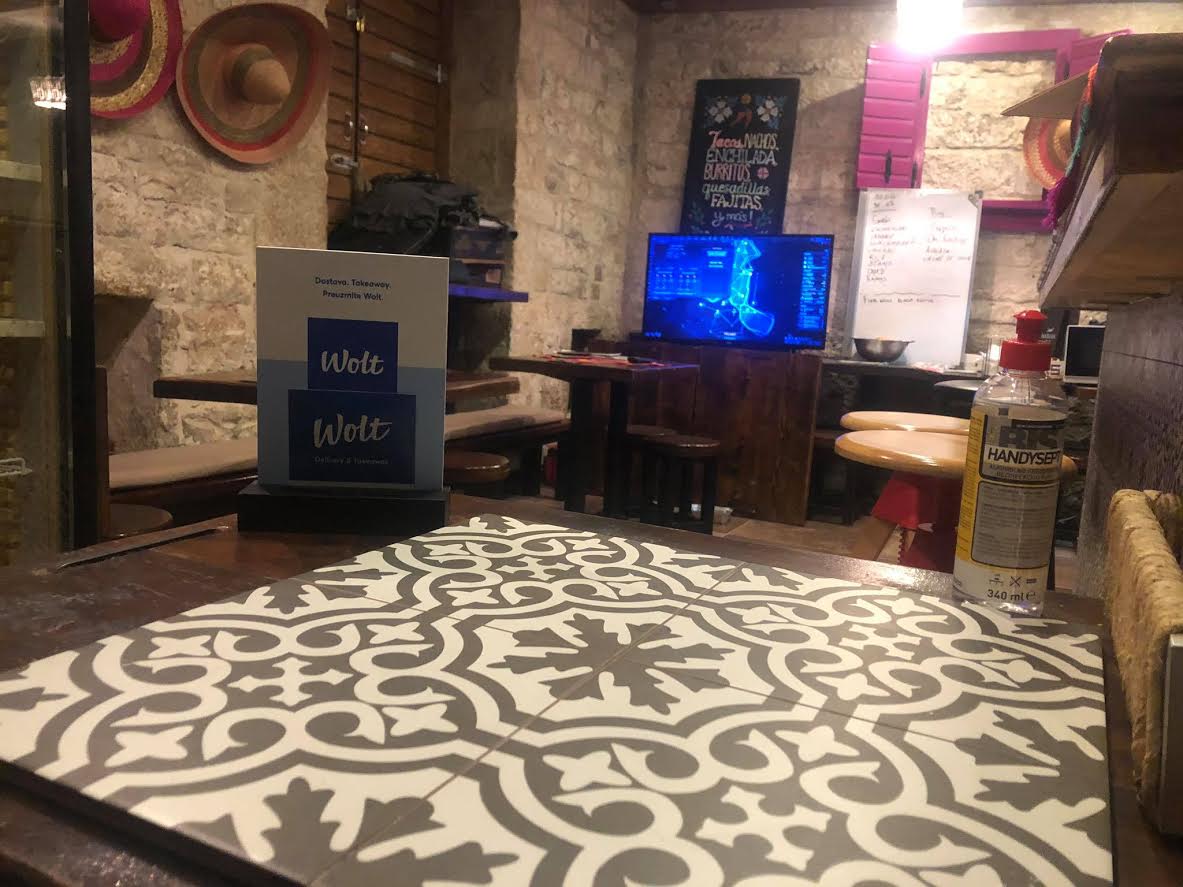
What do you think about the economic measures the government is taking, are they helping your business?
There are two levels of measures, so let’s look at the state and local level.
Statewise, the measures seem promising. The 3,250 HRK for employees is not helpful for a seasonal business since you had to hire the person before the season. My thought is that the employment measures were put in place to stop a run at the unemployment office for benefits and to stop a sudden decrease of money into government coffers, health insurance and pension by existing payrolls.
The share of GDP that comes from tourists is so high that I can only imagine there is relief on the way. My guess is those funds will be used to encourage hiring during a tourism slowdown and in low/no interest loans and payment deferments. The jury is still out, so we have to wait and see.
Locally, I would say the programs that have been introduced are trash. The least the local government can do is relieve businesses of certain payments. Mostly though they are postponing payments to a later date. Relief on tourist tax and postponement of local VAT is ridiculous because no one is here to accumulate these things anyway. The actions look nice in a press release, but mostly the local measures are not helpful. Basically, they are letting businesses pile up debt that they can pay back from loans, future profits or some EU relief funneled through state relief programs.
I believe there is an easy fix. The VAT was reduced from 25% to 13% in 2020. Raise that back to 20% and help small businesses through tax-increment financing. This is usually done through property tax, which does not exist in Croatia (this could help I suppose too). VAT is variable, but the state or locality could take out short-term low-interest loans from some entity that is paid through the increased tax increment. Since it is variable, the government now has an incentive to get off their butts and put their tourism agencies to work. The more purchases that take place, the faster we get back to 13%.
When did you realise that corona was going to be a big issue?
A lot later than your average person. Probably when Italy really started being inundated with infections. There was SARS, MERS, Ebola and many other illnesses that have been shut down pretty well all things considered. I am also pretty slow to panic, so just recently I realized this was going to be a long-term, international problem.
What is your impression of the way Croatia is dealing with the crisis? How safe do you feel?
I have never felt safer in my life. No one is around and everything is closed.
However, the Croatian government has not dealt with this any differently than any other country for the most part. The decree is based on what other countries have done. There has not been any ingenuity.
What is impressive is how Croatians and others living here bought into social distancing and the other measures. I am out every day and the streets are mostly empty, everyone wearing protective gear, no crowds or loitering. There are security guards at stores enforcing the number of shoppers allowed inside. A lot of credit has to be given to the people. There are always a couple of bad apples. Some people are claiming their freedoms are being encroached, but overwhelmingly people are following the rules. The local authority response has also been very well balanced.
What I will say is that enforcement measures may have occurred here too early. Without getting too technical with statistics, the ˝flatten the curve˝ initiative requires there to be a build up significant enough that it is not allowed to peak above the available resources, but kept at a level that resources are available for critical patients. There was no build up here.
As tourists arrive, I believe that many will have been exposed to the virus and have the necessary antibodies while others will arrive that are asymptomatic. Here, very few will be exposed to the virus and a (new) wave could hit.
Will the authorities keep us home until the autumn when there is a vaccine to keep us safe? If an employee of mine is exposed or infected, will they shut down the establishment for 14 days? If no one is actually infected, but exposure happens again, will they again require a 14-day quarantine? If the problem becomes too bad, will they do a more systemic shutdown in the middle of the tourist season?
Some will die from the virus if they are infected which is the terrible part of this disease. We cannot avoid exposure in the long-term though and with a vaccine scheduled after the summer, what will Croatia do if a wave occurs here during the season?
(Shopping at Costco in Flint, Michigan where Tim Bourcier is from)
Now compare that to your home country and how they are handling it. What is Croatia doing better/worse?
Well, the U.S. is a hot mess right now. My state, Michigan, has the fifth-most infections in the country. On one hand, the University of Michigan medical system is second to none in the world. However, my state has two of the poorest cities in the U.S. in Flint and Detroit. Systemically, there is a major distrust of the medical system by African-Americans and it appears many minorities and poor are going to the emergency room after being too deep into the symptoms. Combine that with limited ventilators and other resources and you have a recipe for disaster.
Croatia is doing better across the board. However, keep in mind that the Detroit metro area has more than 2.5 times the population of Croatia, in an area less than 1/5th the area of Croatia.
What about official communications from the authorities, compared to your home country?
From TCN and other portals, I am getting multiple updates daily. The U.S. is always in the spotlight, so there is always media coverage, but from a national perspective that is so broad it does not have a lot of meaning for me being in Croatia. Locally, press conferences are happening at the same pace as here in Split. The U.S. State Department sends a couple notices a week saying get out while you can if you want to get back to the U.S. Communication is the same more or less.
What's the one thing you wish you had taken with you into self-isolation.
I guess I am not really in self-isolation due to work. While I am obeying all laws and taking every precaution, my self-isolation is different. Maybe one of my friends can get a job with Wolt or Pauza….
One thing you have learned about yourself, and one thing you have learned about others during this crisis.
About me, I am pretty unfazed by the situation honestly. There are always obstacles living abroad and running a business in a foreign country. I felt the world change during 9/11, lost my job during the 2008 world economic recession, lost everything I owned during Hurricane Katrina. I have had a bunch of unfortunate circumstances in my life that emotionally I am pretty unflappable. All things considered, this is peanuts and I am predicting this will be a good season at the end of the day if nothing too drastic occurs in the economy or with a large second wave of infection.
I was surprised to see people who think they will be in their home until there is a vaccine and pushing for extraordinary authoritative measures, or on the other side of the spectrum, do not care that they are infected and could be a harm to others. Mostly though, I was impressed about how quickly a large majority of the people came together and agreed to #STFH. In all crises, people tend to go to great lengths to help others and this situation is no different. I would predict that the stories from courageous and special individuals will continue to rise as the curve flattens.
Thanks Tim, stay safe and see you on the other side.
TCN is starting a new feature series on foreign experiences of sitting out covid-19 here in Croatia compared to their home country. If you would like to contribute, the questions are below. Please also include a para about yourself and where you are from, and a link to your website if you would like. Please also send 3-4 photos minimum to This email address is being protected from spambots. You need JavaScript enabled to view it. Subject Corona Foreigner
If you would be interested to record a video version for our partners www.rplus.video please let us know in the email. Thanks and stay safe.
Foreigners Self-Isolating in Croatia: Do You Feel Safer Than in Your Home Country?
Firstly, how are you? Are you alone/with someone? Tell us a little about your situation and sanity levels.
What do you think about the economic measures the government is taking, are they helping your business? (PLEASE IGNORE IF THIS DOES NOT AFFECT YOU)
When did you realise that corona was going to be a big issue?
What is your impression of the way Croatia is dealing with the crisis? How safe do you feel?
Now compare that to your home country and how they are handling it. What is Croatia doing better/worse?
What about official communications from the authorities, compared to your home country?
What's the one thing you wish you had taken with you into self-isolation.
One thing you have learned about yourself, and one thing you have learned about others during this crisis.
TCN has recently become a partner in Robert Tomic Zuber's new R+ video channel, initially telling stories about corona experiences. You can see the first TCN contribution from this morning, my video from Jelsa talking about the realities of running a news portal in the corona era below. If you would like to also submit a video interview, please find Robert's guidelines below
VIDEO RECORDING GUIDE
The video footage should be recorded so that the cell phone is turned horizontally (landscape mode).
There are several rules for television and video news:- length is not a virtue- a picture speaks more than a thousand words
In short, this would mean that your story should not last more than 90 seconds and that everything you say in the report should be shown by video (for example, if you talk about empty streets, we should see those empty streets, etc.).
How to do it with your cell phone? First, use a selfie camera to record yourself telling your story for about a minute and a half. Ideally, it would be taken in the exterior, except in situations where you are reporting on things in the interior (quarantine, hospital, self-isolation, etc.). Also, when shooting, move freely, make sure everything is not static.
After you have recorded your report, you should capture footage that will tell your story with a picture, such as an earlier example with empty streets.
One of the basic rules of TV journalism is that the story is told in the same way as a journalist with his text. Therefore, we ask you for additional effort. Because we work in a very specific situation, sometimes you may not be able to capture footage for each sentence of the report. In this case, record the details on the streets: people walking, the main features of the city where you live, inscriptions on the windows related to the virus, etc.
The same rules apply if you are shooting a story from your apartment, self-isolation, quarantine. We also need you to capture footage that describes your story.
When shooting frames to cover your reports, it is important that you change the angle of the shot (in other words, shoot that empty street from several angles). Also, when shooting a detail, count at least five seconds before removing the camera to another detail.
The material should be about 5 minutes long (90 seconds of your report + frames to cover your story).
After recording everything, send us to Zagreb, preferably via WeTransfer to This email address is being protected from spambots. You need JavaScript enabled to view it.
Croatian Basketball Federation Suspends All Competitions, No Champion this Season
April 2, 2020 - The Croatian Basketball Federation has decided to suspend all competitions and the champion will not be named this season.
HRT writes that in the next 2020/2021 season, “starting" positions from the beginning of the 2019/2020 season will be "mapped".
We fully transmit the news from the HKS website below:
“In order to prevent the spread of COVID-19, following the recommendation of the Civil Headquarters of the Republic of Croatia and the Ministry of Health of the Republic of Croatia, the Board of Directors of the Croatian Basketball Federation, through an electronic session, decided to terminate all basketball competitions and end the 2019/2020 competitive season.
In the leagues run by the Croatian Basketball Federation, no champions will be declared or ranked, and in the 2020/21 season, the same clubs that played in the 2019/20 season will appear in each individual league.
The leadership of the HKS, the Competition System Commission and representatives of clubs and other basketball associations have been in daily contact in recent weeks, and after extensive consultations, a proposal for a decision was unanimously adopted by the HKS Board of Directors.
This decision may, depending on the future circumstances, instructions and recommendations of the National Civil Protection Headquarters, or in accordance with any changes made to the sporting acts, be partially modified and a timely new decision will be made.
Namely, given the apparently difficult economic situation that awaits all clubs and basketball staff, the HKS has today, on April 1, submitted a request for changes to the Law on Sport to the Central State Office for Sport and the Croatian Olympic Committee regarding the change in the competition system in extraordinary circumstances. The Law on Sport stipulates that the competition system must be adopted at least one year before the application of this system, and that all sports competitions, including basketball, have stopped. Consequently, contracts between clubs and players and other sports professionals are terminated, including coaches, physical therapists, administrative staff, and most importantly - contracts that clubs and other sports associations are funding, it is not likely that the system of competition currently in place will be respected.
"Due to the economic situation in which we will find ourselves in September or October when the leagues need to start, certain solutions have to be sought already. As the crisis has hit everyone, the same will certainly be reflected in sports. Therefore, we want to make any changes to the competition system easier and more accessible so that the basketball clubs can better prepare for the next season,” explained the core of the petition, HKS President Stojan Vrankovic.
To read more about sport in Croatia, follow TCN's dedicated page.
Foreigners Self-Isolating in Croatia: Do You Feel Safer? Clarisse from Singapore in Zagreb
April 2, 2020 - Do foreigners in Croatia feel more or less safe sitting out COVID-19 here than in their home country, and what are their experiences? A new series on TCN, with Clarisse Bay from Singapore as our 9th contributor.
Oxford University recently published some research on government responses to coronavirus which showed that Croatia currently has the strictest measures in the world. While inconvenient, this is a good thing in terms of reducing the spread of the virus, and I am certainly not alone in my admiration of the official Croatian handling of this crisis in recent weeks, both in terms of action and communication.
But what do other expats here think? And how does it compare with the response in their home country? Would they rather sit this one out here or there? In the first of a new series on TCN, we will be featuring expats from all over the world to see what their views are on life in corona Croatia rather than back home. So far we have heard from expats in Croatia from Romania, USA, Ireland, UK, Mexico, Argentina, Spain and Germany. Next up, our first Asian perspective with Clarisse Bay from Singapore, who is now living in Zagreb.
If you would like to contribute to this series, full details are below. Now, over to Clarisse.
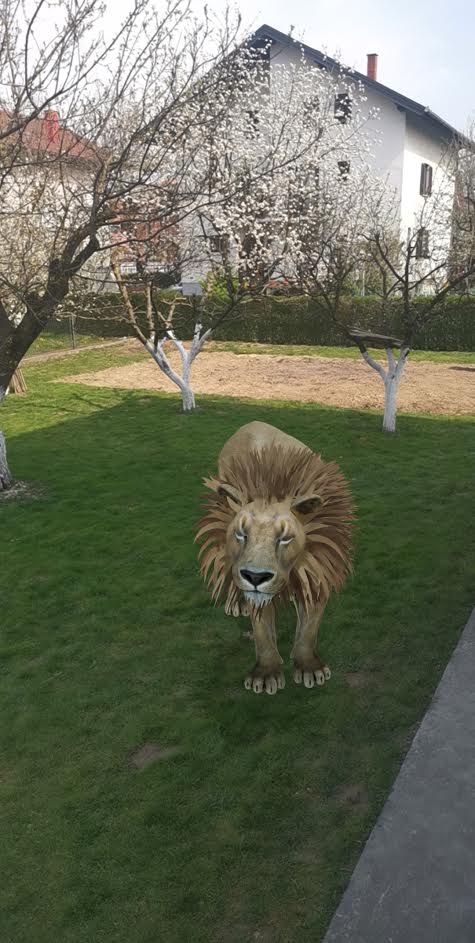
Firstly, how are you? Are you alone/with someone? Tell us a little about your situation and sanity levels.
I am doing well alone. My last job assignment was in December as I went back to Singapore in January this year to spend time with my family and friends during the Chinese New Year. My family had also planned to visit me in Croatia, which was supposed to happen in 3 weeks' time. However, we had to instead spend more time dealing with hotel cancellations and flight cancellations and dealing with travel insurance to retrieve what could not be refunded.
Currently, I am spending my time in self-isolation to brush up on my Croatian language skills. My daily routine, other than the usual social media, comprises of self-learning Croatian language, watching movies and series on Netflix and chatting with my friends from Singapore. This is basically how I pass the time and remain sane despite being cooped up at home.
What do you think about the economic measures the government is taking, are they helping your business?
It is not helping as my business is in the tourism industry, which was the first to be impacted as strict measures were introduced and affected citizens of many nationalities who wished to travel to Croatia. Many businesses like mine which are in the tourism industry are fearing having to close down our business with limited or no help despite being the first and direct impact of this virus. Of course, we understand the government is not to blame and appreciate if any measures would be able to help tide us through this time. However, taxes will be delayed for businesses for 3 months, meaning after this 3 months, we have to pay back the taxes. Delaying the taxes may be a measure, however it means we are expected to work doubly or triply hard to make up for the losses we suffered and the taxes we did not earn, to pay back to the government.
When did you realise that corona was going to be a big issue?
When I went back to Singapore back in January, it was already spreading in Wuhan in China. Being in the same continent, and reading articles about Wuhan residents fleeing in swarms to other countries, I could not help but feel worried, especially as Singapore was one of the top 3 countries the residents fled to. It reminded me of the times when we had SARS. Fortunately for me, I returned to Croatia at the end of January, which I thought was an escape to sanctuary. Life went on as usual for me in Croatia, as I read about the spread of coronavirus in Asia. Less than a month later, it struck Italy and it struck hard. This time, there was no place I could escape to. Croatia started having its own coronavirus patients and the numbers in Singapore were also increasing. It was increasing exponentially around the world, people were dying and reality became a scary thing. When I wake up every morning, the news will be about coronavirus. News of coronavirus is also trending on social media. Countries are in lockdown, airlines are cancelling operations. Now, this is a BIG issue. I belong to the Gen Y and throughout my life, I have never witnessed any countries in lockdown or flights suspending operations.
What is your impression of the way Croatia is dealing with the crisis? How safe do you feel?
Croatia is dealing with it well so far, I am very pleased to say. Croatia implemented measures right from the start, instead of waiting for a certain tipping point before implementing those measures. Sometimes it can cause a little bit of inconveniences as public buses are available only for those with passes. However, it makes me feel safe. Sometimes when I do grocery runs, the need to queue up to enter the stores reminds me of the current situation. It hits me hard that the virus is still here and we need to adhere to the preventive measures strictly. I imagine if we were allowed to live life as per usual, most of us would not be constantly reminded of this deadly virus. With all the preventive measures in place, I feel safe.
Now compare that to your home country and how they are handling it. What is Croatia doing better/worse?
Back in Singapore, the virus started on January 23. The first cases in Singapore were actually Chinese tourists in the country and there was no community spreading yet. However, even with new cases surfacing and numbers going up, a couple of clusters, a couple of unlinked cases sometimes, Singapore did not implement preventive measures as strictly as Croatia did. For now, Singapore has 1000 cases and the ministry has implemented social distancing measures. In Singapore, everything is working as per normal except for entertainment outlets such as night clubs, movie theatres and the likes which will remain closed until the end of April. People are still allowed to go out as long as they maintain social distancing, shopping centers and restaurants are open. Measures may be in place, however some people feel they are still allowed to go out, and that is not helping to curb this virus from spreading.
In fact, when I heard about the measures that were going to be implemented here, I hesitated and pondered about returning to Singapore, where I would just have to serve a 14-day Stay Home Notice upon arrival and after that, I could live a normal life, to go out with friends and family. It sounded attractive enough until I looked into the seriousness of this issue. I realized the privilege of being allowed to go out is for people who really needed to go out for valid reasons, that they did not have to apply for permits to go out like in some areas of China and Italy. That was when I decided to be responsible and stay in Croatia instead of being selfish to return to Singapore just so I could lead a "normal life" while hindering the efforts of the rest of the world trying to curb this virus.
Having said that, the Singapore government has come up with a huge sum of almost $55b to aid its citizens through these tough times and I am really proud that Singapore is looking after all its citizens in times of recession.
What about official communications from the authorities, compared to your home country?
The statistics of the virus are updated at the end of every day via the evening news aired on TV. Other than that, if one is affected by self-isolation measures, stay home notices or a close contact of a newly tested patient, all communications are done swiftly and clearly. I will say in Croatia and Singapore, official communications from authorities are clear.
What's the one thing you wish you had taken with you into self-isolation?
Nothing. My phone is the most important thing for me and it is always with me. With my phone, I can get in contact with anyone I want to, thanks to technology.
One thing you have learned about yourself, and one thing you have learned about others during this crisis.
I have learned that many things in life are just 'wants' and not 'needs'. In this time of self-isolation, practically nothing is working and I can still live without entertainment outlets such as shopping, cinemas and bars.
Honestly, I feel like I am living in my own world now and I have not spent enough time with anyone to learn about others. However, I am still grateful for very kind people during these times, who actually start free online lessons such as language or yoga lessons. That is really wonderful!
Thanks Clarisse, stay safe and see you on the other side.
TCN is starting a new feature series on foreign experiences of sitting out covid-19 here in Croatia compared to their home country. If you would like to contribute, the questions are below. Please also include a para about yourself and where you are from, and a link to your website if you would like. Please also send 3-4 photos minimum to This email address is being protected from spambots. You need JavaScript enabled to view it. Subject Corona Foreigner
If you would be interested to record a video version for our partners www.rplus.video please let us know in the email. Thanks and stay safe.
Foreigners Self-Isolating in Croatia: Do You Feel Safer Than in Your Home Country?
Firstly, how are you? Are you alone/with someone? Tell us a little about your situation and sanity levels.
What do you think about the economic measures the government is taking, are they helping your business? (PLEASE IGNORE IF THIS DOES NOT AFFECT YOU)
When did you realise that corona was going to be a big issue?
What is your impression of the way Croatia is dealing with the crisis? How safe do you feel?
Now compare that to your home country and how they are handling it. What is Croatia doing better/worse?
What about official communications from the authorities, compared to your home country?
What's the one thing you wish you had taken with you into self-isolation.
One thing you have learned about yourself, and one thing you have learned about others during this crisis.
TCN has recently become a partner in Robert Tomic Zuber's new R+ video channel, initially telling stories about corona experiences. You can see the first TCN contribution from this morning, my video from Jelsa talking about the realities of running a news portal in the corona era below. If you would like to also submit a video interview, please find Robert's guidelines below
VIDEO RECORDING GUIDE
The video footage should be recorded so that the cell phone is turned horizontally (landscape mode).
There are several rules for television and video news:- length is not a virtue- a picture speaks more than a thousand words
In short, this would mean that your story should not last more than 90 seconds and that everything you say in the report should be shown by video (for example, if you talk about empty streets, we should see those empty streets, etc.).
How to do it with your cell phone? First, use a selfie camera to record yourself telling your story for about a minute and a half. Ideally, it would be taken in the exterior, except in situations where you are reporting on things in the interior (quarantine, hospital, self-isolation, etc.). Also, when shooting, move freely, make sure everything is not static.
After you have recorded your report, you should capture footage that will tell your story with a picture, such as an earlier example with empty streets.
One of the basic rules of TV journalism is that the story is told in the same way as a journalist with his text. Therefore, we ask you for additional effort. Because we work in a very specific situation, sometimes you may not be able to capture footage for each sentence of the report. In this case, record the details on the streets: people walking, the main features of the city where you live, inscriptions on the windows related to the virus, etc.
The same rules apply if you are shooting a story from your apartment, self-isolation, quarantine. We also need you to capture footage that describes your story.
When shooting frames to cover your reports, it is important that you change the angle of the shot (in other words, shoot that empty street from several angles). Also, when shooting a detail, count at least five seconds before removing the camera to another detail.
The material should be about 5 minutes long (90 seconds of your report + frames to cover your story).
After recording everything, send us to Zagreb, preferably via WeTransfer to This email address is being protected from spambots. You need JavaScript enabled to view it.
Foreigners Self-Isolating in Croatia: Do You Feel Safer? Celia from Spain in Zagreb
April 2, 2020 - Do foreigners in Croatia feel more or less safe sitting out COVID-19 here than in their home country, and what are their experiences? A new series on TCN, with Celia Abril Paredes from Spain in Zagreb as our 8th contributor.
Oxford University recently published some research on government responses to coronavirus which showed that Croatia currently has the strictest measures in the world. While inconvenient, this is a good thing in terms of reducing the spread of the virus, and I am certainly not alone in my admiration of the official Croatian handling of this crisis in recent weeks, both in terms of action and communication.
But what do other expats here think? And how does it compare with the response in their home country? Would they rather sit this one out here or there? In the first of a new series on TCN, we will be featuring expats from all over the world to see what their views are on life in corona Croatia rather than back home. So far we have heard from expats in Croatia from Romania, USA, Ireland, UK, Mexico, Argentina and Germany. Next up, one of the worst-affected countries by VOVID-19 - Spain. How is it going with Celia Abril Paredes in Zagreb?
If you would like to contribute to this series, full details are below. Now, over to Celia.
My name is Celia Abril, I’m 26 and I am from La Coruña, Spain. I moved to Zagreb almost 4 years ago because of my boyfriend who is Croatian and works in Zagreb. During my first year here I did an internship at the Spanish Embassy, then I started teaching Spanish and I recently opened my own business, is a Spanish igraonica (Ludoteka Abril www.ludotekaabril.com) for children aged from 1 to 12 years old to learn Spanish through play, art and dance.
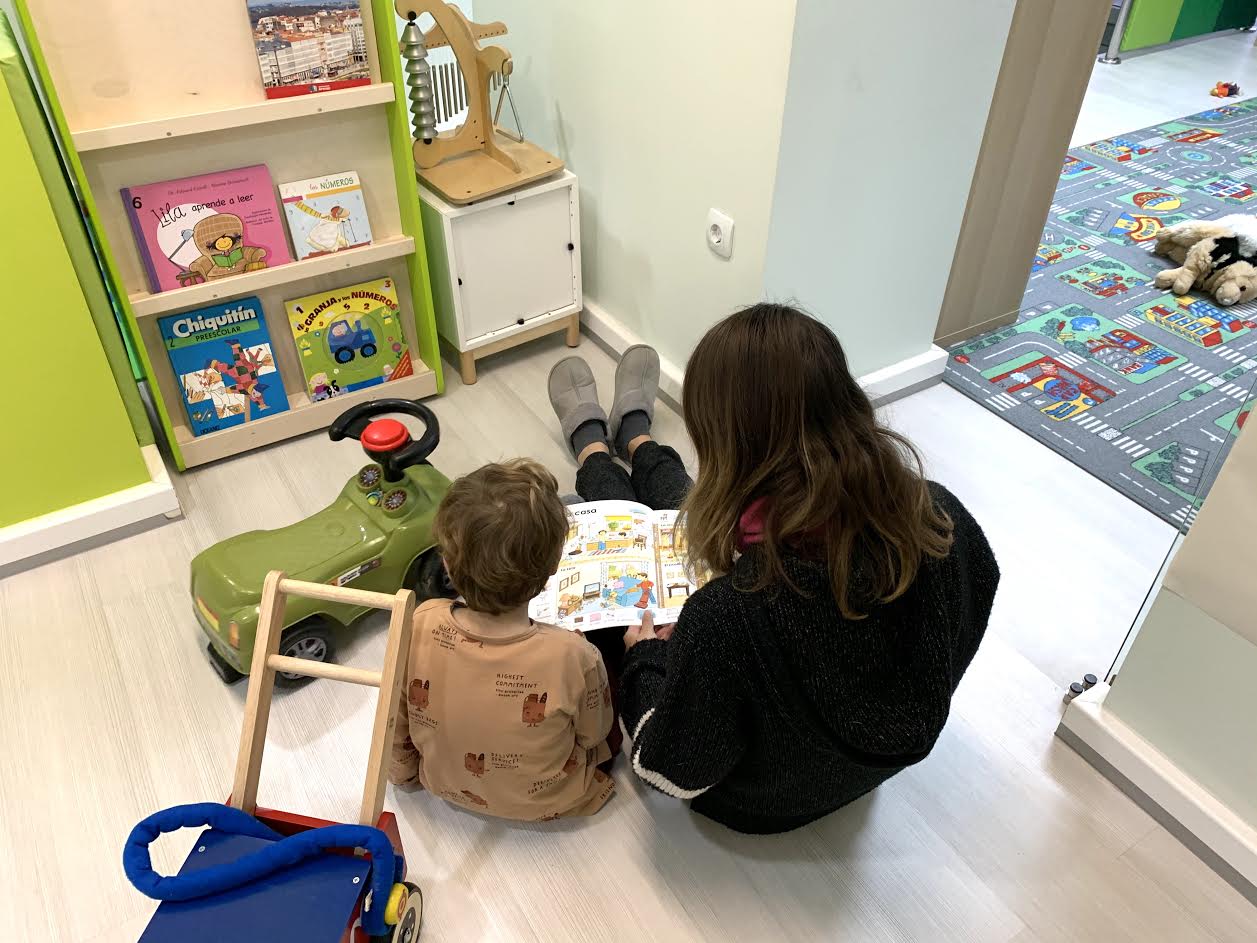
Firstly, how are you? Are you alone/with someone? Tell us a little about your situation and sanity levels.
I am with my boyfriend and our dog. Since we are allowed to walk him every day we have been able to get some fresh air and that helps a lot. So in general I can say that I am okay, although I am feeling a bit anxious about the whole situation, especially for my family and friends back in Spain, because over there things are particularly dangerous.
This situation has affected both my personal and my business life, because I was going to get married here in Zagreb at the end of June, but we have decided to postpone it as we don’t think it is going to be safe. We had over 100 guests coming over from Spain, including children and elders. It was a sad and difficult decision to make but it was the right thing to do.
I also had to close my business which I opened last September (I own a Spanish igraonica located in Zagreb). I decided to close as soon as the government closed all the schools, and this has been especially hard because we were just beginning to get everything going.
However, overall I am feeling grateful that me and all my family and friends are well and healthy.
What do you think about the economic measures the government is taking, are they helping your business?
I did apply for the economic help that the government is providing although I am still waiting for the resolution. I personally think they are good measures considering the circumstances, and much better than the help that is being offered in Spain for business owners.
When did you realise that corona was going to be a big issue?
I honestly never expected it to be this big, but I realised it back at the end of February as I traveled to France and just when I got back at the airport they made sure I didn’t come from any of the countries which by then were the most affected ones. At that moment it really hit me that we were going to face something big.
What is your impression of the way Croatia is dealing with the crisis? How safe do you feel?
I think Croatia is doing a great job, and I am proud and amazed by how quickly they reacted. They took great preventive measures and they didn’t wait for the problem to gt out of hand. However, I do think that it would be good if Croatia added more control over people who manage to gather in groups and don’t respect the social distancing. It is hard to believe, but some people still don’t take it seriously.
Now compare that to your home country and how they are handling it. What is Croatia doing better/worse?
In Spain the government has handled it incredibly badly, so it is the opposite scenario to Croatia. Instead of carrying out preventive measures as they did in Croatia, they let the situation get out of control. They kept denying the danger and allowed large group gatherings such as sporting events and manifestations (such as the one for International Women's Day on 8th March) until very recently. They only imposed measures when it had already become a health emergency.
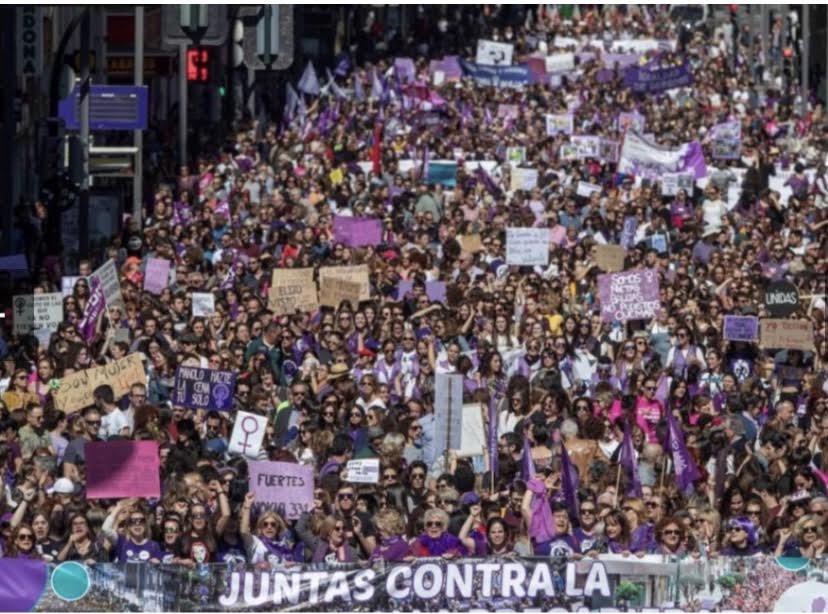
I think here in Croatia the authorities have being doing a good job and in general people has trust in the management, but as the coronavirus advances in Spain and the number of infected and deceased rises, the confidence in the Spanish government's management is falling and all the appreciation is concentrated on the health workers, the state security forces and the Armed Forces.
What about official communications from the authorities, compared to your home country?
Regarding the issue of the number of cases, I believe no country is being 100% honest and that in general the number of infected is much higher than the official figures.
For example, a study showed that in Spain 31.6 percent of the population showed that they know a case of infection in their closest circles or work environment. According to this fact, there would be almost 15 million people who would have some case of infection in their closest environment, so this figure that does not match the official number of confirmed coronavirus infections.
Regarding daily communications on measures and restrictions, I am more focused on those issued by Croatia because they affect my life more directly, and I think health authorities have been very specific and clear when addressing citizens, as opposed to Spain, where communication has been rather confusing.
What's the one thing you wish you had taken with you into self-isolation?
My family.
One thing you have learned about yourself, and one thing you have learned about others during this crisis.
One positive thing I learned about others, especially from the Spanish, is that even though citizens inside the same country may be very different, with different beliefs and points of view, when things get really ugly they are capable of focusing on what is really important and come together to help and support each other.
And one thing I personally learned from this awful situation was to value more the little things that I normally take for granted, such as just going out with my friends or being able to travel to Spain to see my family whenever I want. When these things were suddenly taken away from me I realised just how much I had taken them for granted.
Thanks Celia, stay safe and see you on the other side.
TCN is starting a new feature series on foreign experiences of sitting out covid-19 here in Croatia compared to their home country. If you would like to contribute, the questions are below. Please also include a para about yourself and where you are from, and a link to your website if you would like. Please also send 3-4 photos minimum to This email address is being protected from spambots. You need JavaScript enabled to view it. Subject Corona Foreigner
If you would be interested to record a video version for our partners www.rplus.video please let us know in the email. Thanks and stay safe.
Foreigners Self-Isolating in Croatia: Do You Feel Safer Than in Your Home Country?
Firstly, how are you? Are you alone/with someone? Tell us a little about your situation and sanity levels.
What do you think about the economic measures the government is taking, are they helping your business? (PLEASE IGNORE IF THIS DOES NOT AFFECT YOU)
When did you realise that corona was going to be a big issue?
What is your impression of the way Croatia is dealing with the crisis? How safe do you feel?
Now compare that to your home country and how they are handling it. What is Croatia doing better/worse?
What about official communications from the authorities, compared to your home country?
What's the one thing you wish you had taken with you into self-isolation.
One thing you have learned about yourself, and one thing you have learned about others during this crisis.
TCN has recently become a partner in Robert Tomic Zuber's new R+ video channel, initially telling stories about corona experiences. You can see the first TCN contribution from this morning, my video from Jelsa talking about the realities of running a news portal in the corona era below. If you would like to also submit a video interview, please find Robert's guidelines below
VIDEO RECORDING GUIDE
The video footage should be recorded so that the cell phone is turned horizontally (landscape mode).
There are several rules for television and video news:- length is not a virtue- a picture speaks more than a thousand words
In short, this would mean that your story should not last more than 90 seconds and that everything you say in the report should be shown by video (for example, if you talk about empty streets, we should see those empty streets, etc.).
How to do it with your cell phone? First, use a selfie camera to record yourself telling your story for about a minute and a half. Ideally, it would be taken in the exterior, except in situations where you are reporting on things in the interior (quarantine, hospital, self-isolation, etc.). Also, when shooting, move freely, make sure everything is not static.
After you have recorded your report, you should capture footage that will tell your story with a picture, such as an earlier example with empty streets.
One of the basic rules of TV journalism is that the story is told in the same way as a journalist with his text. Therefore, we ask you for additional effort. Because we work in a very specific situation, sometimes you may not be able to capture footage for each sentence of the report. In this case, record the details on the streets: people walking, the main features of the city where you live, inscriptions on the windows related to the virus, etc.
The same rules apply if you are shooting a story from your apartment, self-isolation, quarantine. We also need you to capture footage that describes your story.
When shooting frames to cover your reports, it is important that you change the angle of the shot (in other words, shoot that empty street from several angles). Also, when shooting a detail, count at least five seconds before removing the camera to another detail.
The material should be about 5 minutes long (90 seconds of your report + frames to cover your story).
After recording everything, send us to Zagreb, preferably via WeTransfer to This email address is being protected from spambots. You need JavaScript enabled to view it.
Pet centar Online Deliveries, Keeping Croatian Pet Lifeline Stable and Safe in COVID-19
April 1, 2020 - As the world changes, some things stay the same - pets have needs. Fabulous interview with Pet centar CEO Ljiljana Markov on the challenges of the new reality, and online delivery services for cats, dogs and other pets in Croatia and the region.
Sometimes it is good to take a step back.
With the current coronavirus chaos and self-isolation and #StayHome the new reality, the survival instinct takes over, and most people are concerned for the safety, comfort and survival of their immediate family. Which is natural.
But many families, of course, include a four-legged friend - a cat, a dog, or something a little more exotic.
Pets have needs, but how to service those needs in an age where basic human needs are ever harder to meet?
Cometh the hour, cometh the Pet centar solution. A really fascinating interview with Ljiljana Markov, CEO of the region's leading pet supply service. A service which is going above and beyond expectations with an online delivery service to all corners of Croatia at this troubled time. Cat and dog-owners - read on!
1. A pet store during the COVID crisis and the earthquake aftermath. You are a lifeline for so many pets and their owners. Tell us how things have changed.
In just a couple of weeks, the world of retail has changed, completely.
Who could imagine a month ago that our cashiers would be protected with glass barriers? That all our cashier staff would wear protective equipment! almost like medical personnel. Who could imagine that customers would patiently wait in long queues to enter our stores one by one? We are also extremely thankful to our customers who have helped us keep social distance in the stores and lowered the communications with our sales personnel to the bare minimum.
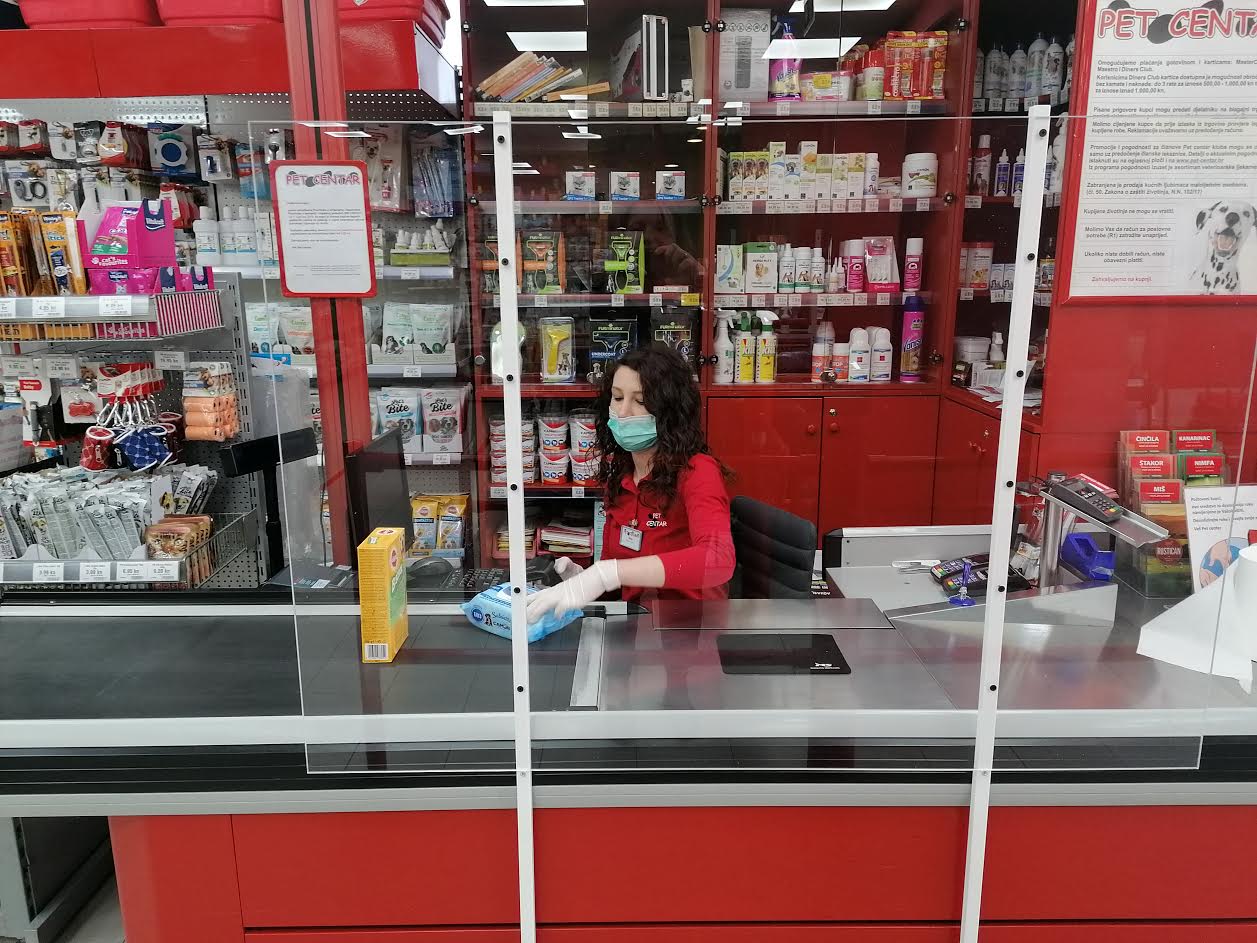
We are privileged. We are able to work and keep our doors open throughout this crisis. Most of all, we're honored with the trust of our customers who still visit us daily online and in our stores, so we have responded with really fast adjustments on all levels:
- implementing strict safety and sanitary measures to protect our employees and customers.
- reorganizing our teams and their work schedules to respond to the increased demand in our shops and online
- reorganizing our logistics capacity to sustain the suddenly increased stock levels, this is easier said than done!
- tripled capacity for online operations. We understand that so many customers can no longer visit the stores, but we are here for you - ALL OVER Croatia!
- introduced new tools to help our customers at home in self-isolation. like, for example, our new live online chat in the webshop to answer your questions and assist the less experienced online buyers.
- and we are about to introduce the “click and collect” service. So you can buy online, and pick at the closest Pet centar shop. This will help us reduce human contact and maximize safety for all.
When I talk to any of our Pet Network employees, I learn about incredible efforts and solutions everywhere. It has certainly brought the best out of our organization.
Also I have to mention our reliable partners, producers and suppliers Diusa Pet, Brit - Vafo Praha, Tolsa, Camon, or transport services company Obala logistica d.o.o. who all did many extra miles to support our supply chain and customers.
We have done so much in the last days. I'm very proud of our team and thankful to our customers whose loyalty and patience motivate us to deliver better and more each day during this difficult period.
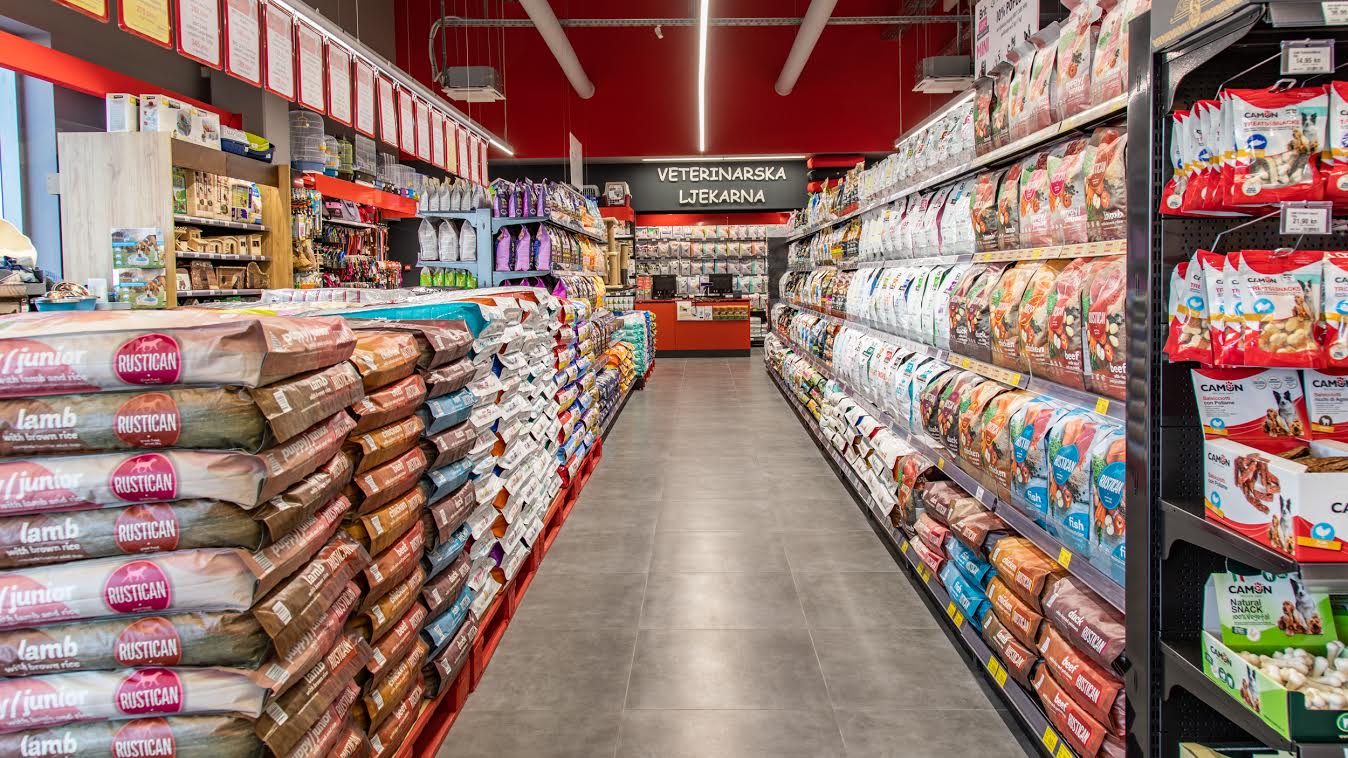
2. What about supplies? Is the supply chain secure?
Pet centar has always been dedicated to a sustainable and fair partnership with our key suppliers, in good times and bad throughout the last 20 years, and we were so happy to experience and receive all the support in priority supply from our partners in the current situation.
Also, our supply chain and logistic managers did extra miles to overpass all logistic challenges in last 2 months and ensured regular stock inflow from EU and abroad to our logistic centers, and adequate stock even during „stocking“ peaks.
We are certain and dedicated to ensure a full supply for our customers throughout this crisis. Minor disruptions in availability in less essential goods could and will happen, but the supply chain is dedicated to provide all the necessities to our pets.
3. Has there been much panic buying? Which items in particular have proved the most popular?
I wouldn’t call this as a “panic buying”, more as a “safety stockpiling just in case”. This is a very natural protection instinct for a family, and our pets are family members. Most families stocked up on basic food and hygiene necessities for their families, so it is no surprise that families with pet(s) also felt the urge to secure food for their pet, not knowing how the situation will evolve in the near future.
This has mainly been reflected in an increased demand for food products, quality cat litter for indoor cats, and also within our veterinary pharmacies for anti-parasite (flea and tick) preparations, as Spring is here.
We see by now that demand is normalizing and customers now trust the stability of the Pet centar supply chain.
4. With people now more or less confined to their homes, online delivery options are increasingly important. Tell us about the services you offer.
Pet centar has been the leader in online pet supply in the region for over a decade, and we are successfully delivering new options to our customers to specifically address the current situation.
Last year we delivered about 50.000 online orders to our customers only in Croatia, also covering also islands.
In Zagreb, we offer a “same-day delivery” service and we are evaluating the feasibility of offering the same service in a few more cities across the region.
We can announce the launch of our new "Click&Collect" online service in the coming days, and also we are experimenting with a “Drive Through” service in response to increased demand for a safe and reduced contact transaction option with the current situation.
5. How long does delivery take, and do you also cover the islands (I am on Hvar at the moment)?
For the Zagreb area, we offer a “same-day delivery” for orders by midday, customers can choose “same day afternoon” or “next day morning” delivery. All other deliveries for the entire country are covered in 1-3 working days, and the islands are served according to courier schedules depending on the season. The only place in Croatia we are currently unable to service is Murter, due to the coronavirus quarantine.
6. What are the biggest pet-related stresses you are noticing with your interactions with your customers?
Pet parents are mainly concerned about healthy nutrition and the general wellbeing of their pet(s). Specific to our region, due to the seasonal prevalence of ticks, anti-parasite protection is an extremely important health concern for pets and their owners. This is successfully addressed by veterinary pharmacies registered in each Pet centar store, with an adequate assortment of veterinary medicines and professional advice of veterinary doctors experienced in pet practice.
Also, “first-time” puppy or kitten owners are very often overwhelmed and confused with too much online information as well, and they appreciate the honest and professional advice of veterinary doctors in Pet centar veterinary pharmacies.
7. To what do you attribute the success of Pet centar?
A productive and cost-effective business model delivered by teams of profound professionals with strong motivation, dedication and loyalty - is a strength to overcome any challenges and led us through success in last 20 years, We are also adept at adapting to market trends and movements, always doing our best to adapt, improve and exceed our customers’ expectations.
8. What were the biggest early challenges, and tell us how you have expanded?
You forced me to think back 15 or so years, and recalling so far back is on the one hand hard to connect to the current Pet Network group, but on the other hand it is such an inspiration and pride what we have had achieved by looking backwards.
From its visionary establishment so many years ago, Pet centar goal has always been quality - quality of our service to our customers, quality of products we offer to the customers and we could always stay behind, quality of the shopping experience which has always been ahead of its time and is constantly improving ... and so on.
It was a huge challenge to deliver this 10 or 15 years ago, and even expand to the region outside Croatia, with very limited resources also in terms of financing capacity. It required a spirit, passion and a will to succeed, with constant learning on the way and breaking down boundaries - in ourselves and in surroundings. Nothing fancy really, it required very hard work for many people who are here with us still!
In addition to the answers above, I would like to indicate that Croatian Pet centar is part of Pet Network Group, currently operating 120 specialized pet stores in Croatia, Slovenia, Serbia and Romania, soon also Bulgaria.
A regional market leader, Pet Network Group serves 10 million customers yearly, delivering strong assortment portfolio including own private labels and consistent service excellence.
You can all find what your pet needs on the Pet centar website.
Foreigners Self-Isolating in Croatia: Do You Feel Safer? Jo from London on Hvar
April 1, 2020 - Do foreigners in Croatia feel more or less safe sitting out COVID-19 here than in their home country, and what are their experiences? A new series on TCN, with Jo Ahearne from London on Hvar as our 7th contributor.
Oxford University recently published some research on government responses to coronavirus which showed that Croatia currently has the strictest measures in the world. While inconvenient, this is a good thing in terms of reducing the spread of the virus, and I am certainly not alone in my admiration of the official Croatian handling of this crisis in recent weeks, both in terms of action and communication.
But what do other expats here think? And how does it compare with the response in their home country? Would they rather sit this one out here or there? In the first of a new series on TCN, we will be featuring expats from all over the world to see what their views are on life in corona Croatia rather than back home. Having started with an excellent contribution from Romanian Mirela Rus, American/Irishman Jason Berry, Tin Bojanic from Argentine and Gabriela Lopez Zubiria from Mexico, all in Split, Steve Gaunt in an English pub in a field in the middle of nowhere near Vinkovci, Barbara Grauning from Munich in Istria - a first look at self-isolation on a Croatian island, thanks to Master of Wine Jo Ahearne, who is feeling a little safer in Stari Grad on Hvar than Borisland...
If you would like to contribute to this series, full details are below. Now, over to Jo.
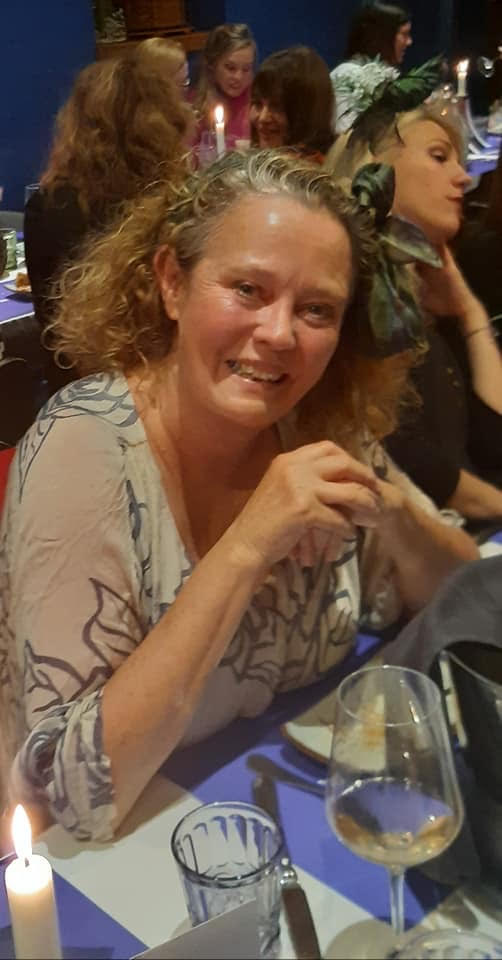
Last night before self-isolation.
Firstly, how are you? Are you alone/with someone? Tell us a little about your situation and sanity levels.
I think sanity levels really change not just day to day but at times hour to hour. I live alone in an apartment in Stari Grad. I’m lucky as it has a nice south-facing balcony with a view over the town and the hills. That makes a huge difference. I oscillate between panic and acceptance to be fair. I’ve pretty much run out of wine to sell and can’t bottle new vintages so that’s an issue but the world is full of closed restaurants so there’s no customers anyhow. I consult in Sicily and India so that’s ground to a halt as well. But I know there are so many people in much more dire situations and with Spring arriving at least the sun is there to warm you up and cheer your spirit. And I have my daily walks by the sea to bring me some sanity.
What do you think about the economic measures the government is taking, are they helping your business?
To be honest I’ve found out most of my information from the great interview you did with Mirela the other day and am looking into if I can apply for help. If I can it will save me big time. The Croatian government seems to be acting swiftly.
When did you realise that corona was going to be a big issue?
I think when the Italian government put the first eleven municipalities into quarantine in February really made me sit up and take notice that it was going to be a global problem.
What is your impression of the way Croatia is dealing with the crisis? How safe do you feel?
Super impressed with how Vili Beros and Alemka Markotic are communicating and being pro-active. Early self isolation for travellers from infected regions swiftly followed by imposition of quarantine for those people.Super impressed with how Vili Beros and Alemka Markotic are communicating and being pro-active.
Clarity of which regions are to be quarantined and which self isolated. Closing the schools on 13th March followed by restaurants, bars, shops etc and public transport less than a week later. At that time there hadn’t been any deaths and very few positive tests. Acting so quickly, decisively and firmly has saved many lives.
I definitely feel safe. At first people were still congregating. You could see people all sitting on the terraces of closed cafés chatting. Supermarkets didn’t use gloves when handling food. But really quickly that changed. Now only 3 people are allowed in a shop at one time, everyone wears gloves, you get your hands sanitised on entry and (mostly) people obey the 2m rule if you do happen to come across someone while you’re out.
No one is panic buying on the island. I just would not be able to keep such a distance in London however much people are now trying to do so. Too many people and not enough space.
Now compare that to your home country and how they are handling it. What is Croatia doing better/worse?
The UK has been a total disaster Boris Johnson should be ashamed of himself. His party has systematically undermined and underfunded the NHS for a decade and now he has exhibited such a cavalier attitude it’s frightening. He merrily told everyone he was shaking hands with people with coronavirus. Talk about lead by example!
He makes jokes about ‘operation last gasp’ when discussing to production of much-needed ventilators while his government stated they refused to take part in an EU order that would have seen 30,000 machines come to the UK because we are no longer part of the EU. Then days later when they realised the population were a tad upset they put Brexit before breathing they changed the story and said the ‘email from the EU got lost’.
And then there was the concept of ‘herd immunity’ he spouted for a few weeks till someone did the maths in anticipated number of deaths from this approach and that was quietly sidelined. Ditto ‘people at home don’t need to be tested’ followed a few weeks later by we shall ramp up testing to 25,000 a day’. Meanwhile staff at hospitals don’t have enough masks and protective clothing. Or indeed tests.
Even the FA suspended Premiership football by 13th March while on the 16th Johnson was still advising people best not to travel and to work from home. Businesses were begging him to make a clear policy so they could act. At this time there was still only 35 deaths. He didn’t close schools till the 18th, bars etc on the 20th and lockdown not till 23rd. As of today there have been 2,352 deaths - a rise of 563 on the previous day.
What about official communications from the authorities, compared to your home country?
I think I’ve covered that above. It’s the lack of leadership in the UK, the lack of clarity, the lack of decisiveness and the lack of empathy. Meanwhile here I’ve seen the complete opposite. Obviously I’m reading translations from the team at TCN but I feel the tone is supportive and empathetic. Great job on keeping the non-Croatian speaking residents up to speed by the way.
What's the one thing you wish you had taken with you into self-isolation?
It’s not realistic to have all my family and friends with me in isolation so I guess it’d be a time machine so I could go back to give everyone the biggest hug before we all got locked away.
One thing you have learned about yourself, and one thing you have learned about others during this crisis.
I pretty much had two years of isolation when I first moved to Hvar so I had already learnt that I am a social being and need people. I guess I’ve realised how ever much I tell myself I’ll read all those books I end up binge-watching Netflix like the sloth that I am. I think we all knew that the human race is a dichotomy. We see acts of selflessness equally balanced by people behaving selfishly - be it panic buying or continuing to go out. The one thing that I has surprised me is the world’s obsession with toilet paper.....
Thanks Jo, stay safe and see you on the other side. We will all be ready for a bottle or three of quality vino when this is all over, and there are few bottles better than the range produced by Jo Ahearne MW - have a look and follow at what lies in store at Ahearne Vino Facebook Page.
You can find more foreigner corona stories in our dedicated section here.
TCN is starting a new feature series on foreign experiences of sitting out covid-19 here in Croatia compared to their home country. If you would like to contribute, the questions are below. Please also include a para about yourself and where you are from, and a link to your website if you would like. Please also send 3-4 photos minimum to This email address is being protected from spambots. You need JavaScript enabled to view it. Subject Corona Foreigner
If you would be interested to record a video version for our partners www.rplus.video please let us know in the email. Thanks and stay safe.
Foreigners Self-Isolating in Croatia: Do You Feel Safer Than in Your Home Country?
Firstly, how are you? Are you alone/with someone? Tell us a little about your situation and sanity levels.
What do you think about the economic measures the government is taking, are they helping your business? (PLEASE IGNORE IF THIS DOES NOT AFFECT YOU)
When did you realise that corona was going to be a big issue?
What is your impression of the way Croatia is dealing with the crisis? How safe do you feel?
Now compare that to your home country and how they are handling it. What is Croatia doing better/worse?
What about official communications from the authorities, compared to your home country?
What's the one thing you wish you had taken with you into self-isolation.
One thing you have learned about yourself, and one thing you have learned about others during this crisis.
TCN has recently become a partner in Robert Tomic Zuber's new R+ video channel, initially telling stories about corona experiences. You can see the first TCN contribution from this morning, my video from Jelsa talking about the realities of running a news portal in the corona era below. If you would like to also submit a video interview, please find Robert's guidelines below
VIDEO RECORDING GUIDE
The video footage should be recorded so that the cell phone is turned horizontally (landscape mode).
There are several rules for television and video news:- length is not a virtue- a picture speaks more than a thousand words
In short, this would mean that your story should not last more than 90 seconds and that everything you say in the report should be shown by video (for example, if you talk about empty streets, we should see those empty streets, etc.).
How to do it with your cell phone? First, use a selfie camera to record yourself telling your story for about a minute and a half. Ideally, it would be taken in the exterior, except in situations where you are reporting on things in the interior (quarantine, hospital, self-isolation, etc.). Also, when shooting, move freely, make sure everything is not static.
After you have recorded your report, you should capture footage that will tell your story with a picture, such as an earlier example with empty streets.
One of the basic rules of TV journalism is that the story is told in the same way as a journalist with his text. Therefore, we ask you for additional effort. Because we work in a very specific situation, sometimes you may not be able to capture footage for each sentence of the report. In this case, record the details on the streets: people walking, the main features of the city where you live, inscriptions on the windows related to the virus, etc.
The same rules apply if you are shooting a story from your apartment, self-isolation, quarantine. We also need you to capture footage that describes your story.
When shooting frames to cover your reports, it is important that you change the angle of the shot (in other words, shoot that empty street from several angles). Also, when shooting a detail, count at least five seconds before removing the camera to another detail.
The material should be about 5 minutes long (90 seconds of your report + frames to cover your story).
After recording everything, send us to Zagreb, preferably via WeTransfer to This email address is being protected from spambots. You need JavaScript enabled to view it.

